#Dracula Is Alive and Well and Living in London
Text
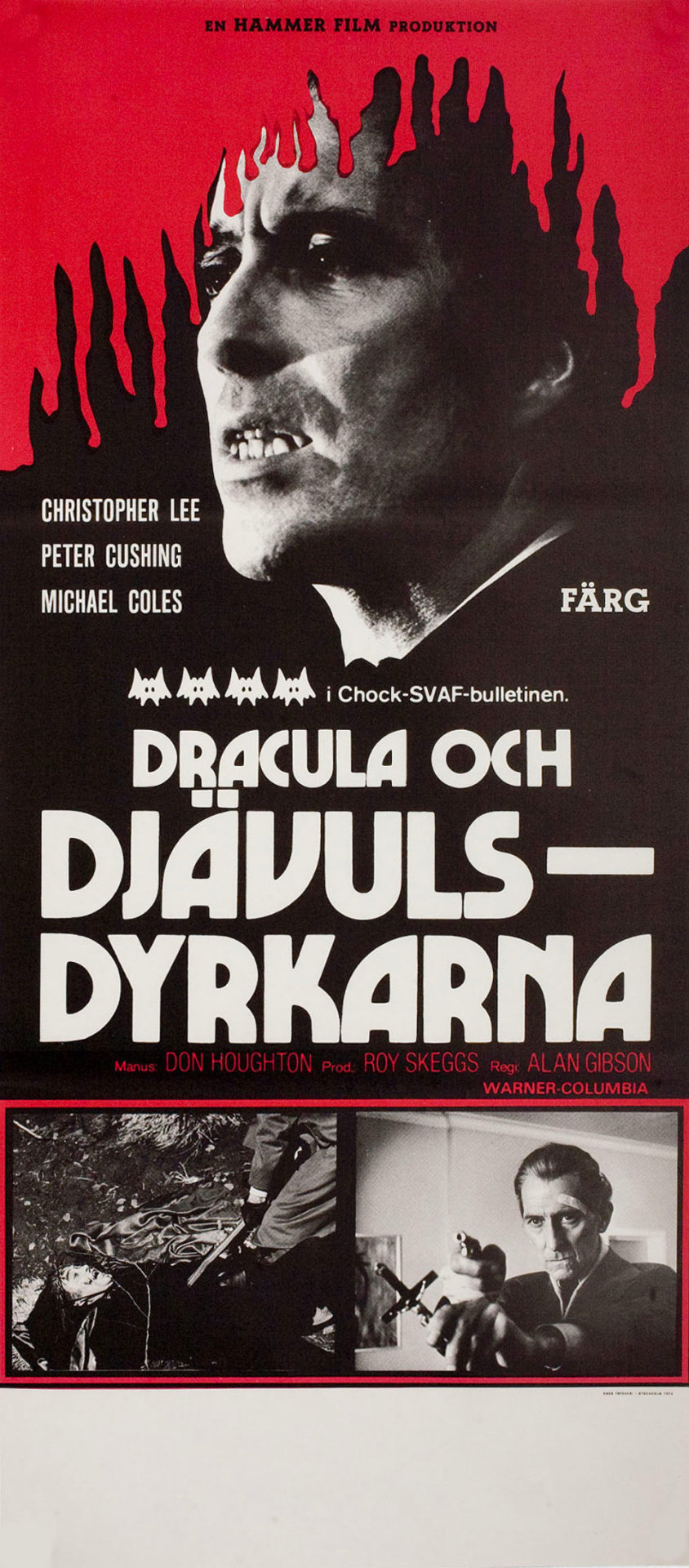

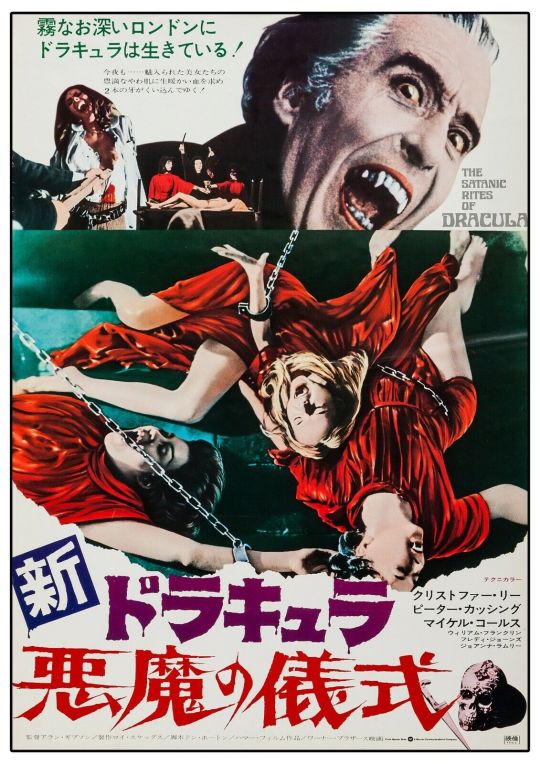
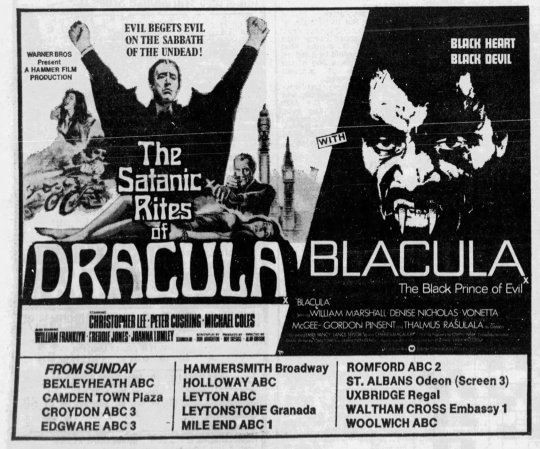
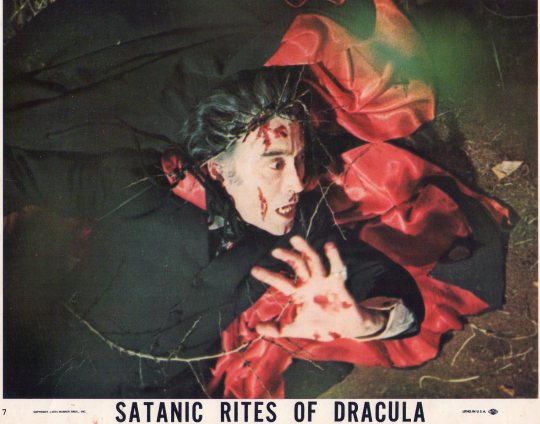

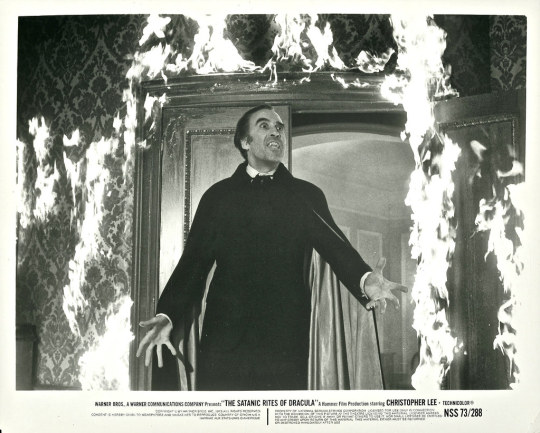
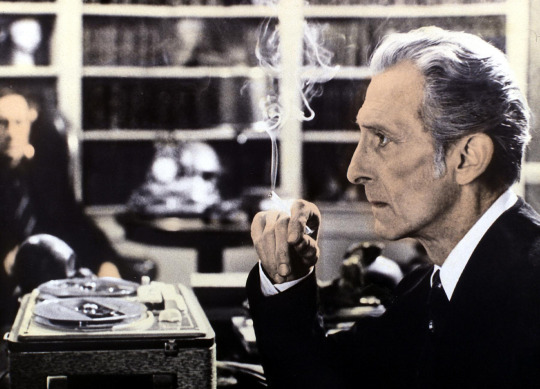

The Satanic Rites of Dracula (1973) Alan Gibson
March 30th 2024
#the satanic rites of dracula#1973#alan gibson#peter cushing#christopher lee#michael coles#joanna lumley#william franklyn#richard vernon#valerie van ost#barbara yu ling#freddie jones#Dracula Is Alive and Well and Living in London
10 notes
·
View notes
Note
I don't know anything about England but I'm interested in how the characters' locations inform their characters like Seward's. I'd like to know more about the implications of being from Purfleet/Essex for example (Though iirc Stoker immigrated from Dublin well into adulthood so I don't know how well he knew all the cities.)
there's so much to be said! i really don't think that stoker meant much intentionally, but the placement of the asylum in purfleet specifically is interesting.
long post so i'm cutting this!
the asylum at purfleet, essex, is an example of the common 19th-early 20th century phenomenon of establishing psychiactric hospitals in the rural counties surrounding london - simultaneously serving as a 'tranquil' location away from the city, while also serving the dubious, cruel purpose of squirelling away would-be patients into residences away from the city - out of society, out of sight, out of mind.
in terms of jack seward himself, purfleet is a kind of an in-between, nothing place - things and people pass through, not much stays. (there's a reason why whitby is remembered as 'the dracula place', and not purfleet.) it's quite literally on the edge of london - of society - and in that scene where jack's looking despondently towards the sun setting west over london, his own isolation becomes palpable - from society and from the world as a whole. the endless, transient, liminal feel of the essex saltmarshes just....gives the vibe. this was a scene that felt particularly gothic to me - jack is the custodian of his very own haunted house, here, in all its bleak, isolated glory.
It was a shock to me to turn from the wonderful smoky beauty of a sunset over London, with its lurid lights and inky shadows and all the marvellous tints that come on foul clouds even as on foul water, and to realise all the grim sternness of my own cold stone building, with its wealth of breathing misery, and my own desolate heart to endure it all.
this is an fascinating parallel with the count's situation in transylvania, which is NOT the topic du jour here so i'll stop before i ramble but compelling nonetheless! like the count, though, he's a liminal figure - in london, but not quite in london. in the group, but not in the group. alive, but not really living. wide awake in the witching hour, unsure how to re-integrate with society.
it's also worth noting that the opening of dickens' great expectations has pip in his childhood home on the kent marshes - which would pretty much be the opposite bank of the thames from purfleet. in great expectations, pip's village serves a similar role - the quiet, bleak, nowhere-place directly placed against the bustling cosmopolis of london.
in terms of other characters and locations, i've written a bit before about jonathan (and mina possibly) hailing from exeter, devon, in the south west of england - which is much further from london.
jonathan and mina, in terms of the group dynamics, are outsiders: they're very much lower middle class, hyper-aware of the importance of money and societal etiquette as a means for survival and social betterment. this is a personal hc of mine, but i like to think of jonathan as having the long supressed remnants of a devon accent. south west accents are often the subject of a lot of ridicule and mockery in the UK (akin to a southern US accent) and hiding that regionalism, in both the 1890s and today's britain, would be a means of survival and progress for him - i think the fact that he's always given a standard home counties RP accent in adaptations cuts out a major aspect of his character. he's a devon boy!
in contrast to all this, lucy's hampstead residence shows her affluence. it, too, at risk of breaking my social isolation metaphor, was on the edge of london at the time - but was known more as a wealthy suburb with huge areas of greenery at hampstead heath and highgate. there's something to be said, though, about a place like highgate cemetery - a liminal place between the dead and the living, between city and country, haunted at night by a vampire - and the same could be said for purfleet.
arthur is hard to pin down - for the life of me i CANNOT work out where 'ring' is supposed to be - at first i thought it might be a shortening for ringwood, hampshire, which could work! but i just don't know. his character does scream privileged southern/home counties though, and if anyone has any followups on 'ring' and its wherabouts i would LOVE to know because this has been bugging me for ages. lmao
tl;dr, psychology and sociology as informed by place is SO fucking fascinating to me like it just. it affects so much. from the liminality of certain places lending themselves to the supernatural, to characters being mirrored by their surroundings and vice versa, to the social implications of where you call home. it's just!!! interesting!!
#cw ableism#dracula#dracula daily#this is my disorganised magnum opus i wrote so much and deleted half bc it goes off-topic but there's so much.....#i grew up near the fringes of london myself and there's a certain transience to that kind of hinterland which i think you get w/ any city#my own personal hc for jack seward is that he was brought up in an isolated seaside town (harwich‚ maybe?) and went to university in london#before continuing his education in amsterdam#also i like that harwich has a DIRECT ship route to the netherlands....thinking.....thoughts..#while writing this i was doing some research and now i have many seward hometown thoughts god.#[points to a puddle in a saltmarsh] this is jack seward. to me
123 notes
·
View notes
Text
"Gwendy + Peter Pan" nickname origin (excerpt from a scrapped WIP)
Not sure I'll get around to writing the fic, it was a cart before the horse kind of thing for my little AU or whatever that I'm working on but yeah, I still thought the part where Hobie teases Gwen about her crush on Miles was cute lol
wc: 622

"So, where are we going?" Gwen asked from a few paces behind.
"First stop's meeting my bassist."
"Cool... is it, like, near anything I would know...?"
"Oh yeah. She actually lives in Buckingham Palace. Mad, innit?" Hobie snickered at his own sarcasm, "You ask a lot of questions, y'know."
"Sorry, I'm not the best at... conversations."
"How's your storytelling?"
"Umm-"
"Cause I heard you're one of them lot that got into multiverse trouble a while back. What's all that about?"
"You know about that?"
Hobie shrugged. "Spider streets talk. I heard a bit, I know 'bout Kingpin and his machine and whatnot but Count Dracula don't really like us talking about you man too tough. Especially not, uh... was it 16...10?"
"Miles..."
Gwen said the name in such a dreamy voice that Hobie was taken aback. He was no stranger to the feeling, as masterful as he was at hiding it - he knew a nasty case of love sickness when he saw it.
That was the first true aberration from the punk Gwen Stacy he had built up in his head; all he had heard made Spider Gwen seem like a real rebel, just like London's had been, but punk Stacy would never come off so head over heels. It seemed to always be about the fight with her.
"Miles, ay? Well, tell me more."
"Where do I start?" she said, mindlessly pushing a lock of hair behind her ear, "He- oh, right. You mean about the collider thing, don't you?"
"What d'you think I meant?"
Hobie looked back at her, incapable of hiding his smirk. The girl was as red as his mask.
"I'm just pulling your leg, love. Speed through the Kingpin stuff and then tell me about your little what's-his-name if you want. I love a good bit of goss."
There wasn't much speedy about her retelling of the events but Hobie was happy that Gwen seemed to be more comfortable talking. Childishly, he was struck with spikes of disappointment at certain points in her story, a little frustrated that 'Gwen Stacy wouldn't have done that', 'she wouldn't say it like that'. Each time he found himself holding his breath, Hobie actively had to remind himself of Jess' words: this wasn't just an American Gwen Stacy... who was alive. This Gwen was her own person - nobody to him, yet - and that was perfectly okay.
"As for Miles," Gwen continued with a sigh, "I don't know. I haven't really done the whole 'friends' thing for a long time... but Miles was different. We just clicked, it was nice to find someone like me, you know? Well, like us, I guess but, I don't know. We're close in age."
"What about the other girl... Peni, was it?"
"Well, yeah, but... Miles and I are both New Yorkers and we met first, I guess, and our personalities just... mesh. When we talked, I didn't feel like I had to be Spider-Woman, it was just like being a regular kid."
"Annnnd, conveniently, he's just your type," Hobie teased, leading Gwen into a jumbled defence of why, though Miles was not not good-looking, it definitely wasn't like 'that'.
She continued to trip over her words as she followed Hobie across the road without paying much attention until he turned around and stopped her with two firm hands to the shoulder.
"Relax, G. I get it. He's your Peter Pan."
"My Peter Pan?"
"That's right, Gwendy. He flies around all cool like," Hobie explained, gesturing to emphasise his web-shooters, "he makes you feel like a kid again and..."
He trailed off, holding off on his poking as he reached a row of run down lock-up garages, one of which was leaking music despite being closed.
"And what?" Gwen asked, arms folded.
"And... youwannakiss'im,"
As Gwen started to protest, Hobie cleared his throat and couldn't help his grin of amusement. "Right! We're here."
#hobie: you get a nickname and you get a nickname and you get nickname and-#gwen stacy#spider gwen#hobie brown#spider punk#across the spiderverse#gwen x miles#atsv fanfiction#shui fic#shuinami
18 notes
·
View notes
Text
“The figure of the vampire literalizes the undead state of the dangerous lover. The vampire’s near immortality links him to Cain, the Wandering Jew, and those ghastly characters in Byron who live eons of pain in a matter of days. In John Polidori’s introduction to his The Vampyre (1819), he points out that vampirism was often considered as a punishment after death for some dark crime committed when living, and the punishment encompassed not only the torment of a lonely and desolate immortality, but also the compulsion to visit the curse on those most loved by the man when alive.
Byron’s Giaour is just such a cursed soul: But first on earth, as Vampyre sent, Thy corse shall from its tomb be rent; Then ghastly haunt the native place, And suck the blood of all thy race; There from thy daughter, sister, wife, At midnight drain the stream of life; Yet loathe the banquet which perforce Must feed thy livid living corse. (755–62) The dangerous lover vampirizes those who love him, as with Manfred’s driving Astarte to take her own life; Glenarvon’s seduction of his victims, which leave them pale and lifeless; and the hero of the modern gothic romance and the erotic historical whose mysterious and terrifying eroticism fascinates the heroine into a helpless passivity.
The Victorian seduction narrative often likens the seducer to a kind of vampire like Dorian Gray, or a frenzied animal like Carker who might attack with fangs. The vampire, like the dangerous lover, steps out of timeless myth. In both myths eroticism might bring about death, transformation, or a transcendence of time and place. Both trace their roots to the Gothic demon who rises out of a supernatural realm of superior strength, agility, and the ability to change shape and form. Those who were already marginalized figures in society were thought to return as vampires after death, Laurence Rickels explains.
In medieval Eastern Europe alcoholics, thieves, excommunicated people, non-Christians (specifically Jews), those who died under a curse, and suicides were some of the excluded who might not stay dead. Dangerous lovers come down through myth with a similar constellation of vampiric symptoms; they are often alcoholics (Carton, Rhett Butler, and numerous erotic historical romance heroes), thieves (Conrad, the Corsair, and many other pirates); they are seen as unholy or cursed (Manfred, the Gaiour, Cain-like figures, Rochester, Heathcliff, and contemporary heroes linked with demonism, especially in gothic romances); they are effeminate or gay-coded (Rhett Butler, the dandy); and they desire death above all else (Manfred, Carton, Heathcliff, etc.).
Vampires after Byron, Tom Holland argues, descend from the Byronic hero, and Bram Stoker’s Dracula (1897), surely the most influential version of the vampire story, was largely based on Polidori’s The Vampyre (1819), a story Holland notes was originally told by Byron, which his sometime doctor heard, recorded, and embellished. Contemporary film versions of vampirism, as well as such popular narratives as those of Anne Rice, represent an even more eroticized, sophisticated, celebrity vampire haunting the fashionable world with dandified grace, full of Byronic decadence, satiated ennui, melancholy, and pallid beauty.
An interesting and tenuous link can be traced between the vampire and the dandy, with Byronism as a background influence for both. Curiously, Lord Ruthven of The Vampyre appears to be something of a Regency dandy, and he has many of the characteristics that the Silver-Fork will later incorporate for its hero. The story opens in a familiar way: It happened that in the midst of the dissipations attendant upon a London winter, there appeared at the various parties of the leaders of the ton a nobleman, more remarkable for his singularities, than his rank. . . . His peculiarities caused him to be invited to every house; all wished to see him, and those who had been accustomed to violent excitement, and now felt the weight of ennui, were pleased at having something in their presence capable of engaging their attention. (265)
Lord Ruthven has “the reputation of a winning tongue,” and he loves to gamble, especially when it means he can ruin promising young men, Dorian Gray-like. He moves through the drawing rooms of London with a magnetic aloofness, “a man entirely absorbed in himself, who gave few other signs of his observation of external objects, than the tacit assent to their existence, implied by the avoidance of their contact” (267). He has, like so many dangerous lovers, “the possession of irresistible powers of seduction” (269). Lord Ruthven, like all vampires, is a dangerous lover of the melodramatic villainous type, and he eroticizes a sexual cannibalism, an act that involves violent, sadistic seduction.
Because the vampire must always be invited in, he represents the paradoxical fascination and repulsion of sex that is desirable because it is dangerous, because it might lead to pain, expulsion, and/or death. This desire to be ravished, to be “taken,” to be greedily consumed, has a role in so many of the demon lover narratives discussed here. When Jonathan Harker first meets the vampire of Stoker’s Dracula, his charm and personable qualities relax Harker after his frightful journey.
Although when Dracula is later encountered in England he is repeatedly described as a kind of crazed animal with a “hellish” look and flaming red eyes, here in the beginning his gently seductive and thoughtful manners draw Harker to him. Like the many melancholy heroes we have encountered he remarks, “I love the shade and the shadow, and would be alone with my thoughts when I may” (26). Dracula is another night brooder like Manfred or Eugene Aram who must do his work under cover of the darkness, when others are safe within their beds.
Cast out of the everyday activities of the living and the permanent stasis of the dead, Dracula haunts the night caught in a liminal state between death and life. Like a melancholy insomniac—Romeo, for instance—he is unable to live in the light of day. Dracula mourns the many who have died during his very long lifetime, both by his hand and by other means. Rickels explains that Dracula represents, like Heathcliff after Catherine’s death or Manfred, unmitigated mourning. Dracula apologizes for his melancholia in one of his few speeches: “[M]y heart, through the weary years of mourning over the dead, is not attuned to mirth” (26).
Dracula must die in order to open the possibility for a future that comes from Mina’s repurification after being “sullied” by Dracula and her engendering of a new narrative through her baby by Harker. That Mina can become a part of the heterosexual couple again and can escape the “outside” as represented by vampirism points to the future of many dangerous lover narratives. Thus we are brought full circle to the collection of dark, mysterious strangers in the twentieth century whose crimes do not need to be expiated by death, or by the punishments and inquietude that might happen after death, but instead their immanence comes on earth and in life, and their terrible self-exiled bitterness is absolved by love in the contemporary romance.”
- Deborah Lutz, “The Absurdity of the Sublime: The Regency Dandy and the Malevolent Seducer (1825–1897).” in The Dangerous Lover: Gothic Villains, Byronism, and the Nineteenth-Century Seduction Narrative
14 notes
·
View notes
Text
"Production began in November 1972. The working title of the movie was Dracula is Dead … and Well and Living in London, a reference to the stage and film musical revue Jacques Brel is Alive and Well and Living in Paris.
"Lee was not amused. Speaking at a 1973 press conference announcing the feature, he said: I'm doing it under protest ... I think it is fatuous. I can think of twenty adjectives – fatuous, pointless, absurd. It's not a comedy, but it's got a comic title. I don't see the point.
"The film was eventually retitled, but was still marketed in French as Dracula vit toujours à Londres ('Dracula Is Still Living in London')."
You just don't get fun stuff like this anymore
2 notes
·
View notes
Text
Horror Starter Kits: Complete List
BODY HORROR STARTER KIT
You will need:
Taxidermy kit
Medical saw collection
Some Junji Ito Manga
An insatiable lust for the dead
Films:
“A Cure for Wellness”
“American Mary”
“Annihilation”
“Black Swan”
“District 9″
“The Fly”
“The Thing”
“Videodrome”
Bands:
Rob Zombie
Cannibal Corpse
The Cramps
Aesthetic:
Yami-kawaii
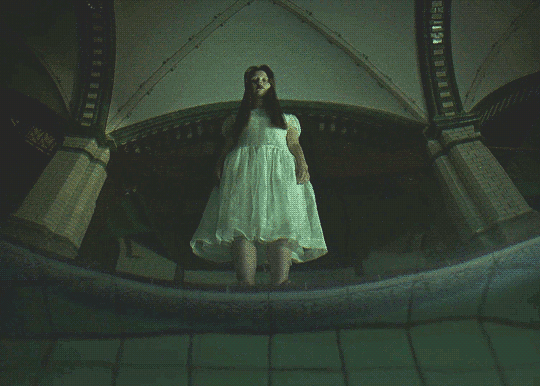
CANNIBAL HORROR STARTER KIT
You will need:
A weird collection of masks
Cookbooks... too many cookbooks...
Locks of hair tied in ribbon
A clear conscience
Films:
“Raw”
“The Green Inferno”
“Ravenous”
“Silence of the Lambs”
“The Hills Have Eyes”
“The Texas Chainsaw Massacre”
“Cannibal Holocaust”
Aesthetic:
Business casual
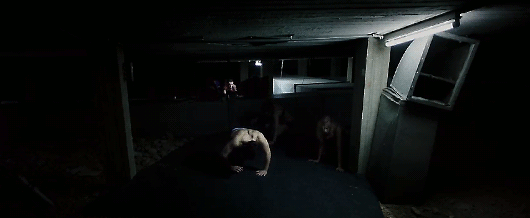
CLASSIC MONSTER STARTER KIT
You will need:
An angry mob
Dramatic lighting
A cape
Multiple sequels
Films:
“Frankenstein”
“Dracula”
“The Mummy”
“Dr. Jekyll and Mr. Hyde”
“Van Helsing”
Playlist:
“Hammer Horror” - Kate Bush
“Living Dead Girl” - Rob Zombie
“Dance Macabre” - Ghost
“Found Love in a Graveyard” - Veronica Falls
Aesthetic:
Psychobilly

CREATURE FEATURE STARTER KIT
You will need:
A bigger boat
Flare gun
Zoology degree
Machete
Films:
“Jaws”
“Crawl”
“Killer Bees”
“Lake Placid”
“The Birds”
Playlist:
“Animal I Have Become” - Three Days Grace
“Rats” - Ghost
“Human Fly” - Nouvelle Vague
“Black Cat Bone” - Laika
Aesthetic:
Junglecore

FOLK HORROR STARTER PACK
You will need:
Shrine to a dead God
Grimoire/Spellbook
Hoodoo doll
Jars of teeth (human, preferably)
An eerie sense of community
Films:
“The Blair Witch Project”
“Gretel and Hansel”
“Kill List”
“Midsommar”
“The Ritual”
“The Wicker Man”
“The VVitch”
Aesthetic:
Cottagecore
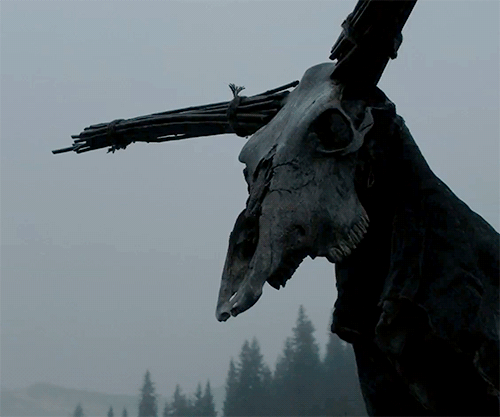
FOUND FOOTAGE HORROR STARTER KIT
You will need:
Some shaky camera work
Heavy breathing
Phone reception? Nah
Zero sense of self-preservation
Films:
“The Blair Witch Project”
“REC”
“Grave Encounters”
“Creep”
“Troll Hunter”
“V/H/S”
“Cloverfield”
Aesthetic:
Cryptid core

GOTHIC HORROR STARTER KIT
You will need:
A library of old books and tomes
An exorcist and/or Ouija Board, depending on bravery level
Some sweeping landscapes
Long, flowing robes
A dramatic personality
Films:
“Crimson Peak”
“Sleepy Hollow”
“The Others”
“Gothika”
“The Woman in Black”
Aesthetic:
Goth, obviously
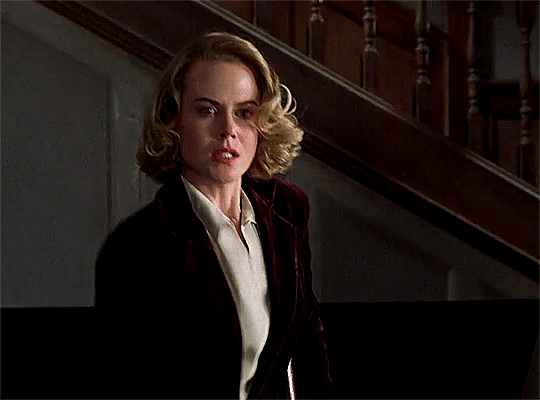
SCI-FI HORROR STARTER KIT
You will need:
A deep hatred for astrology
A telescope
A pioneering spirit
High-tech weaponry - extra points for a ray gun
Films:
“Sputnik”
“Re-animator”
“Flatliners”
“The Cube”
“10 Cloverfield Lane”
“The Platform”
Aesthetic:
Cyberpunk
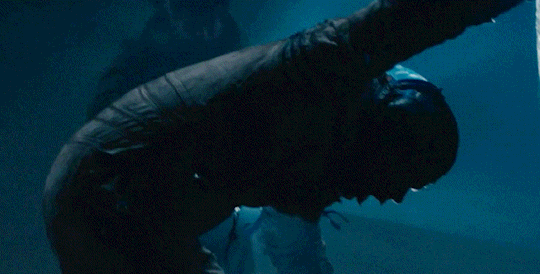
SEA HORROR STARTER KIT
You will need:
Thalassophobia
A collection of old diving helmets
Specimens collected from sea monsters
Footage of a mermaid
A shark cage
James Cameron
Films:
“The Lighthouse”
“Underwater”
“The Abyss”
“Jaws”
“Deep Blue Sea”
“Sea Fever”
Aesthetic:
Seapunk and/or Coconut Girl
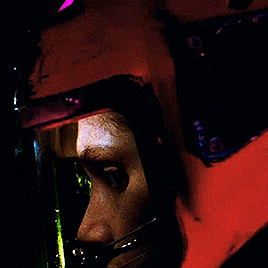
SLASHER HORROR STARTER KIT
You will need:
A shiny knife
To know your favourite horror movie
No common sense
A mask
One hell of a scream
Films:
“Halloween”
“A Nightmare on Elm Street”
“Friday the 13th”
“Scream”
“Fear Street Part 1: 1994″
Playlist:
“Mr Evil - Melodic Reggae Version” - Freedom Call
“Tear You Apart” - She Wants Revenge
“In For the Kill” - La Roux
“Somebody’s Watching Me” - Rockwell
“Eyes Without a Face” - Billy Idol
Aesthetic:
Theatre kid
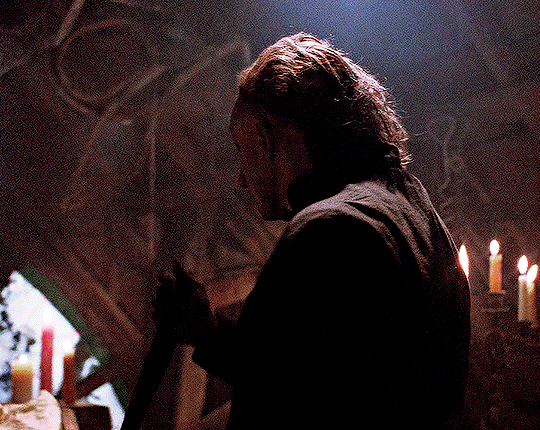
VAMPIRE HORROR STARTER KIT
You will need:
A thirst for human blood
Angst
Robes. robes, and robes
Blackout curtains
Aversion to cheer
Films:
“Let the Right One In”
“Interview With the Vampire”
“A Girl Walks Home Alone at Night”
“From Dusk Til Dawn”
“Byzantium”
“The Lost Boys”
“Only Lovers Left Alive”
“30 Days of Night”
“What We Do in the Shadows”
Aesthetic:
Steampunk
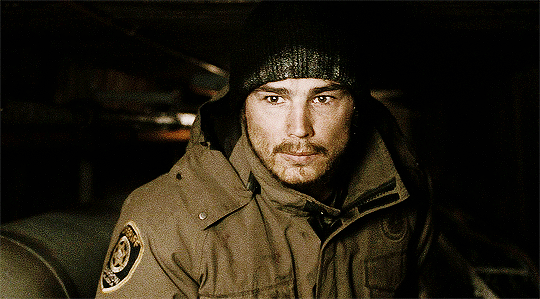
WEREWOLF HORROR STARTER KIT
You will need:
A full moon
Stretch pants
A manicure
Shackles
Films:
“An American Werewolf in London”
“Ginger Snaps”
“Teen Wolf”
“The Wolfman”
Playlist:
“I Was a Teenage Werewolf” - The Cramps
“Sisters of the Moon” - Fleetwood Mac
“Pitbull Terrier” - Die Antwoord
“I Wanna Be Your Dog” - Emilie Simon
Aesthetic:
Fur-punk
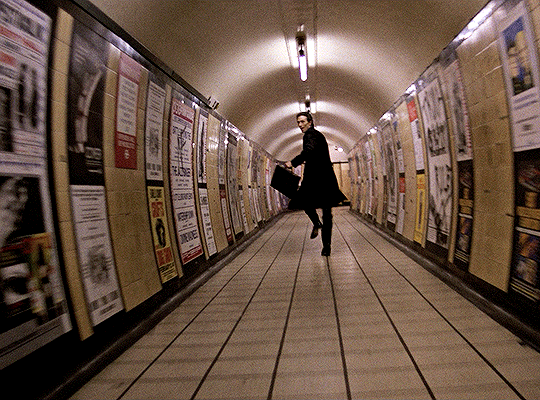
#horror#horror films#horror movies#horror community#films#movies#watchlist#body horror#raw#cannibals#hannibal lecter#silence of the lambs#vampire aesthetic#vampires#vampire community#vampire core#dracula#van helsing#a cure for wellness#creature feature#the birds#folk horror#the ritual#midsommar#ari aster#horror edit#found footage#gothic horror#gothic#goth
448 notes
·
View notes
Text
The Vampire As Liberation: Original Essay
In celebration of the BLOOD&BREATH vampire zine getting over 100 orders (THANK YOU!!!) I am releasing, as promised, my original "vampire as liberation" essay (though you may have seen similar thoughts expressed in this post).
I originally wrote this for a vampire film class at my university, for which I received an A+! This was the final paper, so I didn't get a grade on it specifically, but I think I did pretty well. Take a look:

There is always some kind of ‘high society.’ Whether it appears in the classroom, workplace, or social circle, there is always something to strive for. Particularly in Western society, there will always be the concept of one highest individual in this high society—the richest, the best connected, the one with the most power. And, conveniently, it can be quite difficult to locate who this is, which leaves everyone scrambling to secure the top spot. The vampire is a final reprieve from this society.
One’s schedule changes: in Dracula’s Daughter (Universal 1936), the titular character, Countess Marya Zaleska, must take her visitors only by night (00:33:10). Son of Dracula’s (Universal 1943) Kay Caldwell and her husband, Count Alucard, make the same request of their potential guests (00:39:00). Dracula himself, in his eponymous film (Universal 1931), sleeps in a coffin by day (00:46:22). There is hardly any way to connect with this daytime society when one is only awake at night.
One becomes a criminal: in all three of the above mentioned films, the vampires must feed on humans to stay alive. They become fugitives by default; murderers. They must devise schemes to either lure a victim to their home (as in Dracula’s Daughter, when Countess Marya uses Sandor to acquire Lili [0:34:10]) or else take care of them swiftly in the street (as in Son of Dracula, when Alucard preys upon a small boy later brought to Dr. Brewster [00:53:20].)
And one becomes undeniably, immediately, irreversibly Other.
In Dracula, Rensfield goes from respectable businessman to raving lunatic in his service to Count Dracula. The viewer might not be blamed for not recognizing the laughing, incomprehensible madman in the ship’s hold as the gentleman who dined so cautiously at Dracula’s table (00:20:23). He poses himself as an educated man, at first; he doesn’t believe in superstitions (00:04:00). All this silly vampire stuff. But just a few minutes pass on screen, and he is transformed into a man who will never again connect with what human society believes is real. He does not have to believe in the Other because he is the Other. He cannot deny the Other that lives within him. And—crucially—he does not seem to care to. Despite his help to those still embroiled in London’s upper class, he does not focus extensively on his own condition. After all, there’s nothing to be done.
Lucy’s brief appearance in Dracula mirrors this attitude, though it may not seem so upon first glance. She always desires Dracula; she imagines a life with him in his exotic, mysterious castle (00:26:32). She knows that her place is here, in England, with an average fiancee who will support her with his typical job, but she does not want it. Had she never met Dracula, undoubtedly Lucy would have met that boring fate, and whyever not? One must aspire to what society promotes. But Dracula, by inviting her to experience this heterosexual marriage with him, however subtly, cracks the glass of the supposed normal life she would otherwise live. She is already ever so slightly outside the normal, with Dracula as a supposed ‘exotic’ human man, and so the leap to vampire is not quite so hard to make. And though we don’t see her much longer throughout the film, she doesn’t seem to regret her decision, either. She doesn’t seem to even consider another life.
But it is Mina, undoubtedly, who makes this point the strongest. She does not particularly like Dracula at first, and even mocks Lucy for her interest. She has her fiance, whom (despite his total lack of apparent personality) she seems quite happy with. She is part of this high society, and she seems quite at home there. Furthermore, she’s distressed by all signs of vampirism—these dreams she can’t understand, these marks she’s ashamed of (00:38:07). And yet, in one moment, her attitude completely changes.
Once Mina is a vampire, she cannot imagine returning to her human ways, with much the same intensity as her prior disbelief that a life of Other could possibly be better. She is now out of the society, and out seemingly forever. And how freeing is it, suddenly? To wear a tight-fitting gown (01:01:21). To show such open affection to her fiance, to initiate these affections—and then reject, totally, the male lover assigned to her. To be loud and take up space. To act strange, to put men off. Her purpose is no longer to rise in some petty human pecking order. She can never return to the untainted virgin that she used to be; she is Dracula’s vixen. And isn’t it wonderful to be free, to be free from what she would have otherwise been.
But then, just as quickly, she turns around again. Harker comes for her, in the abbey, and Van Helsing puts a stake through Dracula’s heart, ostensibly curing Mina (01:12:26). This scene provides a wealth of readings via Mina’s wide eyes, chest-clutching, and labored breathing. She could seem terrified or delighted, in the throes of death or orgasm, and remains silent right up until the moment the camera leaves her. Then she screams. I have always read this moment as much more ambiguous than the casual reading—that Mina is cured, human again, and back to society unchanged. Back to demure, submissive heterosexual marriage with the man of society’s choice. How certain are we that she has been ‘cured’? That her ultimate recollection of that moment was pleasure and not pain? How do we know that her scream was real; that her fluttering confessions to Harker are true? And so Mina rises alongside him on the stairs to the tune of ringing wedding bells, leaving the audience only with her word as to whether she has remained the feral vampire, or has reverted to a proper young maiden once again.
Women do not get very much agency in early vampire films. Their roles are largely defined by which men they would like to be married to. Each major female character in these three classic vampire films—Mina, Lucy, Kay, and Marya—is defined largely by her relationship to and desire for different major men. Unfortunately this leaves the viewer with a rather unsatisfying look at the vampire as liberation, for women are only given the choice of a proper man or an ‘improper’ man—never really anything that might be too shocking (no man? or God forbid—a woman?), despite Dracula’s Daughter’s minor lesbian-tinged vampire attack. Even Marya, apparently attracted enough to women to seek one out to bite, does not spend more than one scene interested in Lili, and in fact ultimately only uses her and other women as a way to get closer to Dr. Garth, who represents the primary object of her desire.
Despite the material, even in these later films there is still an obvious connection between vampires and the Other, between humanity and the proper. In Son of Dracula, for example, Kay Caldwell provides our opening introduction to Alucard. She has a fiance—your typical gentleman, kind to her but otherwise unremarkable—in whom she seems vaguely interested, despite his retorts to her conversation on the occult (00:09:07). Kay spends much of her time with him not only discussing the occult but specifically Alucard; though she likes Frank, she is not satisfied enough to keep her mind from straying.
The film’s plot winds around several strange twistings of its events—first that Kay has left Frank for Alucard, and that she has married him, and then of course that she has become a vampire, and then that she only did it for Frank after all, so that they could be together. It is hard to really trust Kay—she seems always to have someone to lie to, and desires within her that go unexpressed. Is she freed by her relationship with Alucard? Perhaps to be immortal, but not to be in love. In her human relationship with Frank, she seems happy but unfulfilled. Kay defies Mina and Lucy’s prior simple desires for either one or the other by complicating what makes up ‘human society’. She doesn’t care for the social events or gatherings, even for the worries of her own human sister, but she wants Frank. She wants Frank, whom she has been offered, but she does not want him as he has been offered. Kay will only take Frank changed, Othered—and then she wants him forever.
Countess Marya forms a counterpoint to all of the above examples by lamenting her vampirism. She does not want to be a vampire—she loathes her urges and seeks out Dr. Garth originally to cure them with his hypnotism. She plays piano (00:15:06), she attends parties (00:23:30), she mingles with the social elite, but still she knows she is not like them. A vampire can mix with humans as much as she likes, but she is still not human. She is still Other. And in this way, with her lust for the proper and for this unattainable normality, she turns her vampirism into a tragedy. She seeks out Garth, but how can she have him? Once he knows what she is, he displays the same disgust as Frank. No proper human man will take an Other woman. In fact, Son of Dracula and Dracula’s Daughter share the same inherent tragedy in their romance—that despite the vampire woman’s devotion, her human man seeks only to end her. No matter how beautiful she may be.
And yet despite Countess Marya’s self-loathing, there is still an undercurrent of liberation, of power. When she understands she cannot change herself, she embraces her figure—the Other, the vampire, the murderess, the embodiment of evil. She kidnaps the woman closest to Garth and threatens to kill her (01:04:21). She sends away Sandor, rebuffing him when he requests immortality (01:04:46). In finally understanding her irreparable separation from society, she becomes truly herself in a way that she never could have been before. She owns herself, and she chooses for herself. What is not given, she takes. No gentle young woman could do this—and perhaps that is the real secret of the vampire. That once you understand you will never get what you used to want, you learn to take what you need.
Whether desirable or detestable, this Other presented by classic vampire films is clear and consistent. The vampire, in particular the female vampire (sorry, Renfield), is a figure totally outside of usual high society. She travels alone and lives in far-off retreats with her chosen lover, and perhaps a few choice other creatures of the night. She uses others for her gain; she rises in a glamour unmatched by the shallow victories of human social domination. She transcends this rough plane of humanity into a never-ending power fantasy in the dark.
And so the ultimate charm, perhaps, of the vampire is that it is always possible—that anyone can become a vampire, can liberate themself. This is what these classic vampire films offer us: Do you want to be freed? What would you do if not for these petty constraints?
And if we come tonight, to turn you, will you be waiting?

Final notes: We didn't have to quote things directly, just cite the timestamps and otherwise assume awareness from the reader, so if you don't get a film reference, my apologies-- and go watch it!! These were all worth at least one watch, and I'd definitely watch Son of Dracula again more than once. Hope you enjoyed!
ko-fi | Patreon | all writing | book
#txt#important writing updates#Are people super into academic writing? I could go look through other things I wrote but I feel as though this is kind of the peak.#vampires#monsters#writeblr#litblr#studyblr#filmblr#yves talks books#blood&breath#blood & breath
118 notes
·
View notes
Text
Everlasting Love
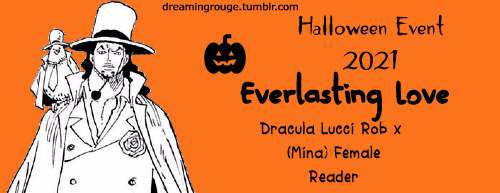
Anonymous requested: Thanks for reblogging it! May I get a one shot Halloween au of the movie dracula the bram stoker one if you've seen it? I love count dracula in it but the '92 version? 😩 I can see Lucci playing dracula then a fem reader as mina please! I'm not sure who could play Jonathan so that can be up to you! I hope this is an ok request! Have a good day! 😊
Dracula used to be one of my favorite movies (I honestly can’t stand Dracula/Mina ship in the book – At least in the movies Dracula genuinely likes Mina alkfdja), so this was such a blessing to write! I did give them a happy ending (aside from “Jonathon” lol) so I hope you enjoy anon! I had so much fun with this request!
🎃 Halloween Masterlist 2021
Dracula Lucci Rob x (Mina!) Female Reader
Count Dracula – Lucci Rob
Elisabeta’s reincarnation Mina Harker (Murray) – the reader
Jonathon Harker – Kaku
Warnings: Fluff, angst, hinted horror with vampire aspect but I don’t dive into it, unedited, Uhhh one last thing – Lucci doesn’t have any wives whereas Dracula had multiple. I just couldn’t see him having more tbh
Words: ~3k
-
Do you know what eternity feels like?
Count Lucci is still trying to figure that out. At the beginning of his immortal life – He thought it was magnificent. All the power and the glory and the future that was never-ending. He imagined he would get his sweet revenge, to be able to live his life and have it all especially for the one woman he deemed worthy to be his wife. His lovely Elisabeta. She died when he was human. So of course, he had to reject the religion and whatever higher power was out there.
There was no way he would allow this cruel world to win so he became a vampire with the dark powers he had founded.
And he lived a lonely life for so long. Having long gotten his revenge in the war he participated in and the false reports of his own death that forced his wife to take her life. It is not enough though. Now he is a cursed being. Lonely and in constant agony with blood lust. A lonely life.
But then, he saw her. Her beautiful and soulful eyes. Her nose he loved to peck. Her kissable lips he used to trace and that hair he loved to tangle his hand through. He saw her. His wife. His beautiful Princess Elisabeta… Only he knows that this girl he saw in his vision really was not her. He felt his heart die when Elisabeta did but with that new vision of the girl… It feels like his heart was fixed.
Just now he woke from that dream. Well, not a dream. He saw the girl with Elisabeta’s (face type) face and her alluring (eye color) eyes. He saw this look-alike breathing making his heart ache for her. He knows she is not his wife. However, she is a reincarnation of her, and seeing her – knowing that same face is alive – Count Lucci is going to get her. He vows he will get what he was robbed from with his first love. He is going to find this reincarnation and show her everlasting love.
In his vision, he heard the reincarnation’s name. A lovely name it is. One that fills his lonely soul aflame.
(Name). (Name) (Family Name).
However, from the sounds of it, it would not be (Name) with her maiden name for long – She was due to be (Name) Harker.
In the vision, he also saw a man named Kaku Harker. That makes Lucci frown as he remembers the vision of her stunning smile aimed at the human and despite her happiness… He also felt a deep sorrow in her. A hole that can’t be filled. He knows it is her soul longing for him. She could not have been with him in her past life, but he will ensure she can in this life.
He will. He knows where her location is. London and even the street she was on. He just needs to move there, and he plans on doing so.
-
Lucci did not expect the man from his vision to come straight to him. When he had the town locals call someone to help him buy a house and help him brush up on the English language… He had no idea that this Kaku Harker would come straight to him.
He delivered himself to Transylvania on a silver platter.
“Forgive my honesty but you are the old man I am meeting?” Kaku asks with a bit of uncertainty.
Lucci smirks at that. He must look ancient. He has not fed in a while since the locals are overly cautious – They know the tales and know not to be stupid. However, once in London, he can feed all he wants. He can return to his desired look and sweep his (Name) off her feet. He can get the love he deserves and by god does he plan on giving her the love she deserves. She will know no other love.
And he can feed off Kaku after he secures a house. That is the plan then. Jonathan can be doomed to stay here, stuck, and cared for by his servants until Lucci decides to return with the lovely (Name). Or perhaps he could drink him dry after he has him write a long letter telling (Name) how there will be no wedding. That will work just fine since he will have to keep Kaku away if he and his true love really are to be wedded.
He is going to love and care for her like no other and from the way Kaku is already eyeing his magnificent home… It is not going to be a hard task at all. He just has to find what Kaku desires the most and use it to his advantage.
-
“In the letter, I received from one of the locals setting this meeting up… They did not say why you wanted to move to London. This place is spectacular – The architecture is beyond unique,” Kaku says one evening that he stays.
Lucci raises an eyebrow and hums. “You have quite the eye then. This place is old but a beauty. However, it gets lonely. I long to find an old friend back in London before any more time passes and it becomes too late. Are you perhaps… Willing to keep an eye on the place?”
Kaku looks surprised momentarily before he shakes his head. “That is a wonderful offer, but I am afraid I can’t. I am due to marry. A beauty of London, my fiancée… Though, I admit I am not quite ready to settle down. The wedding is arranged but either way, I am honored to have such a high union with her.”
Lucci can hear the emptiness in Kaku’s voice. It is a marriage of convenience – To up his family’s name is what it sounds like. He despises that. (Name) only deserves the best and Lucci can provide that. Lucci hums again but says nothing, deciding his plan would be best used when Kaku is resting up at night. He can drink from him and gain whatever strength he gets, and use it to hypnotize Kaku into staying. Then when he gets to London and drinks his fill – The hypnotization will only grow stronger.
He will have no worries in meeting his true love again.
And this time he will protect her from the cruel world.
-
The breeze that the ocean gives off feels nice. The land that is coming until view makes the nerves in Lucci begin to light up. He thinks back briefly on how a few days ago, he did not even need to hypnotize Kaku.
After a very tense confrontation – The human man asked if Lucci was a vampire. He had been gathering evidence and Lucci was rather impressed since he has been trying to be careful with showing his true nature. Lucci had finally told him the truth – Showed him the truth, Kaku willingly let Lucci feed on him and gather some strength he will need.
All he wanted in return was money, treasure, the chance to study the ancient castle Lucci resides in for however long he wants. Kaku even willingly wrote a letter to the dear (Name), explaining that they have to postpone the wedding for an unset amount of time. A letter to her family, apologizing and promising to keep in touch as he is doing “research” for their future.
He practically sabotaged himself all to look at the castle and for more money than he can possibly imagine.
It was so easy for Lucci. He could even trust Kaku with Hattori until he returns.
He can feel that the universe is helping him. He needs to be reunited with Elisabeta’s reincarnation. He is meant to love (Name). He feels it in his veins. His heart that has held nothing but agony for the past centuries is yearning for the tender love and affection she can possibly offer him, that he has denied from countless women searching for the eternal life he can provide.
He only wants (Name) and to offer her everlasting love.
Stepping into the city of London is a brand-new experience for him, seeing all the men dressed in suits and the women in stunning gowns. It is nice to see civilization growing, seeing all the new ways they commute – All the people he can feed on, willingly or through hypnotization when he needs it.
So far he does not. He had drunk from the whole crew on the boat and looks brand new – His long, black and luscious hair framing his face and his facial hair back. His frail dying vampire body now feels alive being back to his desired muscly form and the feeling grows as he is determined to deliver the letter to the beautiful (Name)’s family.
This is just a taste of what his eternity should feel like – He wonders what it will feel like when he meets her. His pulse quickens at the thought – He feels twitterpated, something he has not felt in so long. It is almost a miracle of how many raw emotions he has been feeling of late.
It was easy getting to the (Last Name) residence, and even obvious to see that they are well-off which is why Kaku wants to marry her. He would be marrying into a lot of wealth but… If it is the wealth that (Name)’s family also desires that Kaku hinted at, Lucci wins at that game. Count Lucci is richer than anyone he can possibly imagine.
Knocking on the door, Lucci is prepared for his charm to begin. He will be so charming and confident that her parents will love him – especially since Kaku has postponed the wedding. He is going to worm his way into their hearts as a potential love interest for (Name).
As soon as the door opens, his charm turns on and he gives who must be the man of the house, father of (Name), Mr. (Family Name), a deep and respectful bow.
“What is it you want?” Mr. (Family Name) asks with a deep scowl.
Must be from not hearing from Mr. Harker any time soon. A frail older woman comes to the man’s side, and he can see the immediate flustered expression from seeing him. He knows this will be an easy battle to win.
“Good evening, Mr. and Mrs. (Family Name). I am Count Lucci. Just Lucci will work fine. I have a letter from dear Kaku Harker,” Lucci states as he holds out one of the letters Kaku wrote.
Mr. (Family Name) grabs it with urgency and rips it open as he begins to skim the words. His wife reading from beside his shoulder, and he has to hide the smirk from her dramatic gasps as she reads it. Eventually, the letter is ripped up.
“Wait, you are the man that Kaku is working for then? It is an honor to meet you – I have heard from him when he took on the job that you are a brilliant man also with a love for buildings,” Mr. (Last Name) states with intrigue.
Lucci nods his head. “Yes, that would be me. Mr. Harker was a good… Realtor. I found the perfect place here and wished to introduce myself. I have many connections and Mr. Harker wished for me to connect you to that if you wish. Whatever business you may be in or want to look forward to in the future, I am the man who can help you.”
“Oh, come in! I will go get some tea going and you can tell us about the place you live in,” Mrs. (Family Name) says as she motions for him to enter the house.
He does with a smile on his face and Mr. (Family Name) adds in, “Yes, and please do tell us about your opinion on Mr. Harker. My patience is rather low since he decided staying to investigate a castle is more important than marrying my beautiful daughter.”
“Kaku isn’t here?” A soft and the most beautiful voice Lucci has ever heard says in a shocked manner.
Lucci’s eyes move to the staircase of the home where he sees the most gorgeous human being in existence. (Name) is on the top of the stairs, her eyebrows slightly narrowed down in confusion for not seeing her fiancé.
She is just breathtaking.
Lucci was not aware his heart can beat so fast as it hasn’t in centuries.
“Ah, Count Lucci, this is my daughter (Name) – Though, I am sure Kaku told you a lot about her,” Mrs. (Family Name) says as she motions her daughter to come to her side.
She does.
As she grows closer, Lucci can’t help but swallow her entire appearance – Especially her meek expression as she eyes him warily, but he can hear the distinct sound of her holding her breath. As if she found something in him that she did not know was missing. There is an instant connection, and he wants nothing more than to pursue it right here and now.
However, he is careful.
“Unfortunately, Mr. Harker did not say much about his engagement. Such a shame to not boast about such a beautiful fiancée. A diamond among gems she is,” Lucci says sincerely.
The women smile at this, and he can see the father getting upset from hearing about Kaku’s lack of words for his daughter. A sign that this marriage is not meant to be in the father’s eyes.
Lucci reaches for her hand, being gentle but firm as he grabs it and moves it to his lips where he places a featherlike kiss on the top of it.
“It is a pleasure to meet you, (Name). I am Count Lucci.”
He can hear her heartbeat quicken.
-
It only takes a full week to gain the trust of her parents. Her father even hinted that Lucci is better husband material to his daughter than Kaku. It also only takes a full week to be fully wrapped around her finger. At any beck and call and he would go running to her – of course, making it appear as if it were a coincidence.
He has found joy with her again and he can tell that she feels the same as her eyes search for him at the dazzling parties that her parents throw. Though, she is too loyal to really want to make a move. He plans to change that – to give her the truth that Kaku told him back in Transylvania.
He waits until it is the perfect night – Another party her parents throw but one that has the most guests. There will be a room for opportunity to steal (Name) away and find someone more intimate to talk to her. To ask her if she is feeling the same way and if his affections for her are not in vain.
Lucci waits until the party gets full, and his eyes begin to search for his love to leave the home. He instead favors the garden and only a few couples are strolling through it. Lucci chooses a bench that he has seen (Name) visit regularly on his visits here and he waits on it.
He does not think he has ever felt this nervous before – Ironic to him since he is ruthless to everyone when need be.
“Is this seat taken?” (Name)’s lighthearted voice grabs his attention fast.
Lucci quickly stands up and bows as she takes a seat. Her eyes are glued to his and he smiles upon seeing her radiant one.
“You will always have a seat beside me,” Lucci answers her.
Her smile widens and he can hear her heartbeat quicken yet again. She reaches for his hand, and he decides then and there to get it off his chest. His burning passion for her.
“(Name), forgive me for my bluntness and for my passion but I simply cannot hide my affections for you anymore. I desire you. I wish to wed you. I have already garnered your parent’s approval. I just wish for your consent. We could be married as soon as possible or wait as long as you wish. I just want to be married to you. I can offer your family all the wealth they desire, but you, I can offer you, everlasting love,” Lucci says feeling breathless.
Her face gets close to him and he can hear the blood rushing her veins. He can smell her intoxicating scent – He knows that he will have to tell her that everlasting to him, truly means forever. He will tell her soon that he is a vampire. That he can give her the gift of eternal life with the everlasting love. He will do it – But for now, he does not wish to take away the human life she has.
He will give her a blissful ignorant year before she finds the truth of him and only then will he decide their fate – Whether she wants to leave him if she deems him a monster or takes a chance on him and let their souls burn in a forever passion.
“I wish to wed you too. I just wish I knew how I am going to let Kaku down.”
Lucci kisses her cheek swiftly. “Fret not. Your father will handle that. Kaku will not be too heartbroken either. If he were… He would have never postponed the wedding. He is crazy for not wanting to be with you.”
(Name)’s eyes seem to twinkle as she responds with content. “You are right. Maybe it was always meant to go down like this. I have a feeling that you and I are meant to be. I… Have never felt as excited or nervous around someone before until you showed up. The way you look at me like… I am the only one in the world too… My heart bursts whenever you look at me. I want this love to last forever.”
Her returned affections give him hope no matter how the truth comes out. Lucci is grateful for this second shot at true love.
#my writing#spooky writing#one piece x reader#lucci x reader#lucci rob x reader#fanfiction#oneshot#one piece fanfiction#one piece one shot#female reader#fluff
56 notes
·
View notes
Text
Female characters in retro shojo [70s edition, part 1]
Ah, the 1970s (and early 80s), where a majority of the shojo manga stories took place in a distant European country or in America, surrounding either orphan girls from the 19th or early 20th century, who remain cheerful and have adventures, trying to find out who they are, making friends and falling in love, or epic historical stories filled with war, scandals and larger than life characters. If the manga was taking place in Japan, the plot was somehow more down to earth -though most of the time it restrained the same amount of unrealism- and it was either about following the journey of a girl who pursues the career of her dreams and evolves into a notable person, or a high school story filled either with melodrama and angst or a more heartwarming romantic comedy. But in this two-part article I won’t talk about plot tropes of the shojo manga of that era -as this topic deserves an exclusive article-, but about the female characters (I will dedicate an article on male characters some other time). Those characters are very important, as they set the standards of today’s manga and anime. But it should be noted that back then the formula of their design and characteristics are different from today’s. Those are the categories that I’ve noticed, regarding the appearance and personality.
The “average” protagonists
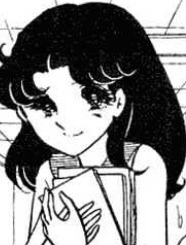

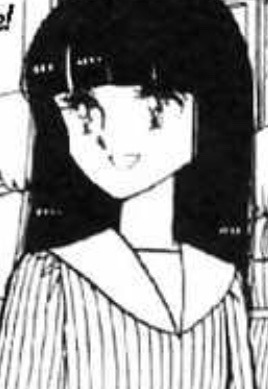
They are the most common category. Usually, they come from middle class and they are presented either as cheerful and a little dense schoolgirls, or plain looking and unrefined, as oppose to their antagonists or rivals who are well educated, beautiful and more talented, but this may serve as a determination for them to improve. Other times they are presented as headstrong heroines, ahead of their time, who refuse to compromise and for this they are a pain to their old-fashion society. Either way, they are kind, good, well-intentioned and want to help the others, that’s why they make friends easily. The thing that really works with these characters and makes them much more interesting than they may seem, is that they are independent and built their future on their own and they never give up, no matter what happens and what someone might say about them. Even when they are not sure of themselves, they always keep trying, until they reach to their dream. They use their obstacles as strength and determination to go on, proving that they are not average at all.
Maya, the protagonist of “Glass Mask” is a great example of this. She starts as a good-for-nothing daughter of a poor family, who isn’t particularly accomplished, but has a hidden passion for acting which she hadn’t realise it herself at that point. But when she is discovered by Tsukigake, a former legendary actress, she realises how much she wants to be an actress to a point that she lied saying that her mother allowed her to study to sensei’s acting school and ran away from home. Not even when her mother told her that she doesn’t consider her as her daughter anymore, she didn’t gave up, in spite of being very hurt by this. Her path towards acting wasn’t easy. Many times she has to face many who say that she doesn’t belong to that industry, or who are jealous of her talent and means her harm, but with her faith in herself, she always overcomes those obstacles. An admirable thing about her is that she dislikes fame, being shy, as she just wants to act and that she does not gives up, no matter what and even when she does, she quickly stands up. The most interesting dynamic of the story is her worthy rivalry with Ayumi, that is clearly a case of the trope “technician vs performer”, with Maya as the performer, as her standard method to learn how to play a character is to become that character. As the story progresses, Maya evolves from a girl with a hidden talent, to a young actress who portraits an original take to classic characters, but who still had much to learn, to one of the greatest actresses of her generation.
In “Yokohama Monogatari”, Uno starts as a plain, poor, orphan girl, who is ignorant about the world, as she hasn’t even seen the sea before and she believed that westerners were vampires who could drink people’s blood, that’s why they had blonde hair and blue eyes. She starts to work as a companion in a rich family to their daughter Mariko, who is the same age as her. Besides their differences, they become quickly best friends. While Mariko is a little spoiled, Uno, despite of her ignorance of world, can be more considerate and responsible in some matters. She also has a lust for learning and soon her and Mariko pursuade her family to go to school. There, she meets many people, among them there are a few foreigners too, she makes a lot of friends, and she excels at all of her studies, being hardworking. As the years passed by, Japan changes and allows exchange of ideas from many cultures -it’s Meiji era we are taking about, that means the last quarter of the 19th century- and Uno evolves from a poor, -many would say- hopeless for her situation, clueless of the world girl, to an open minded, educated and refined woman, surrounded by many people she loves.
In “Tokimeki Tonight”, Ranze -well except of being the daughter of Dracula and warewolf and having her own vampire powers as well- is an average girl who is friendly, sweet and little quirky girl who goes to school and falls in love with Shuun. Some may say that she is pretty basic, but in fact, she knows her self worth well, so even when her parents were disappointed with her not having any power yet, at the beginning of the story, she wasn’t particularly bothered by it. Also she is very headstrong that she falls in love with a human boy, while she knows well that a creature from the demon world and a human cannot be together. But in spite of all of that, she decides to stay true to her own feelings and even though she’s not so sure about Shuun’s feelings for her either, she doesn’t give up and waits for him, because she hopes and deep down knows that he likes her too and she is right. And even when her parents want her to marry prince Aaron of the demon world and even the king- learn that she likes a human, in spite of that being against the rules, she isn’t afraid to stand up for her beliefs. Later though, we learn that Shuun is the lost prince of the demon world, so he is not a human after all, but that’s another story.
In “Aim For The Ace”, Hiromi is a typical schoolgirl who struggles to get better in tennis, when she gets selected as one of the club’s main players in school by the new coach, as he saw potential in her. Some of her seniors are jealous of her because of that and at first she thinks that she is not worth such a discrimination, but soon she improves and realises how much she loves tennis. There’s also a very similar rivalry dynamic with “glass mask” between Hiromi and Reika who grow to be worthy opponents.
In “Haikara San Ga Toru”, Benio is a headstrong young woman who studies Kendo, drinks sake and prefers reading literature and feminist ideas, rather than being interested in housework. She also likes to dress in western clothes, rather than the traditional kimono and strongly believes that women should have the right to decide for their future on their own and they should marry for love. But her world turns upside down when her father announces that he has arranged a marriage for her. The one that he indends for her is someone she knew before, very briefly and accidentally, a lieutenant named Shinobu. Of course, she refuses, being loyal to her ideals and she goes out of her way to avoid him, just to satisfy her pride, in spite of actually starting developing feelings for him. When she moves to his grandparents’ house to get prepared as his wife, she purposely fails in all of her duties as a housewife and constantly argues with his grandparents, but all of that only makes Shinobu fall for her even more. It’s only when he leaves to go to the war, when she realises her feelings for him and during at that time when everyone thought that he was dead, she matured and became even stronger, remaining loyal to him and determined to work as a journalist to support his family, but also tracking him down, hoping that he’s still alive. Of course, at the very end, they live happily ever after together. Benio’s character development is admirable; starting as a clever, but headstrong girl, to an independent and wise woman, proving that you don’t have to disagree with everyone in order to prove that you are the one who chooses how to live your own life.
The villains
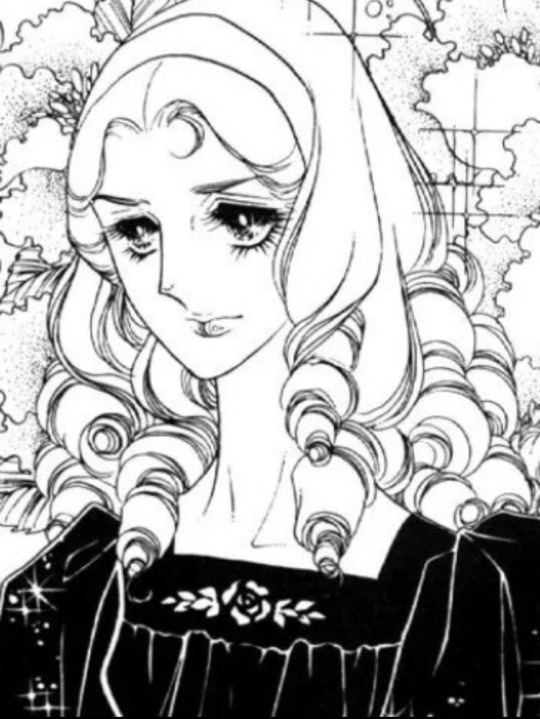
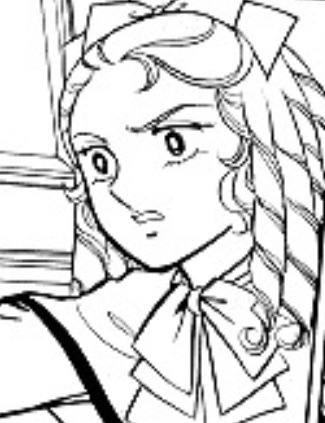
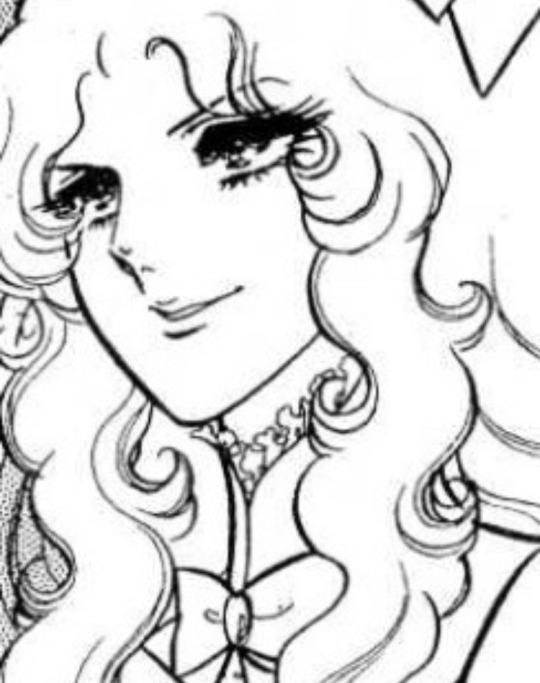
Their extreme pride and vain is their common nature. Most of the times they come from a wealthy family, so they are either oujo-sans who are always dressed elegantly, are seemingly refined and they tend to have curly, blonde hair -as blonde hair seem to be associated with wealth and sophistication in Japan-, or they are just spoiled brats that demand that everyone will do as they say. They are the main antagonist of the story for different reasons. The most common one is that they are jealous of the heroine, either because they are their love rivals and they are jealous of the heroine’s relationship with the love interest of the story, or because they are just pathologically jealous of the heroine because of her looks, her happiness, her luck and her loving nature. Another reason they act the way they do is because they want power and success, or they just want to secure all of that. The worse and least complex reason of all is that they are just mean for no particular reason.
Eliza, from “Candy Candy” is the typical alpha b*tch who is pathologically jealous of Candy. At first, she along with her brother, makes her life miserable, by blaming her for the bad things they do, such as hurting the horses in the stables, provoking her and then telling to their mother that she’s wild and leaving her alone in a town she doesn’t know and locking her in dark rooms. After that, during their time in London, Eliza says to everyone that Candy is an orphan who made her life miserable, even blaming her for Antony’s death. Later, having the habit of falling in love with the one that Candy likes too, school, she falls for Terry and constantly tries to turn him against her, failing miserably. She also writes a fake letter to her that it was supposedly from Terry and to Terry too, to meet each other in the stables at night and with this, she blabs them to the teachers and Candy, having no choice, leaves school. Later, when Candy was pursuing a career as a nurse, she continues her cruel ways and her mother also threats the director of the hospital where she was working, that if they won’t fire her, the Leagan family will withdraw their funds for the hospital and she also made sure that no hospital from Chicago will hire her, leaving Candy in a difficult situation. Those are only of few of the things that Leagan family did to Candy. The worst part is that they don’t pay for what they did at the end.
Fukiko from “Oniisama e” fits well this image; She is a refined lady from a rich family, the president of the sorority and very educated, that’s why she is admired by everyone. However, in reality she is manipulative, proud and very possessive. She wants to control everyone and she’s even willing to go out of her way to achieve what she wants. For instanse, she’s jealous of Nanako because she is close to Henmi Takehito, the one that she (Fukiko) is in love with, so to control her, she chooses her to be a member of the sorority and demands that she will stay away from him, even by pulling her into the lake and attempt to drown her . She also makes Rei’s life miserable, by stepping into her weakness, refuse to accept her as a member of their family and constantly manipulating her with the cruelest of ways. Also, it’s revealed that her friends from the sorority are feeling pressured because of her. Later, with the death of Rei, along with her realisation that Henmi and Kaoru No Kimi are truly in love, surprisingly, she regrets, gives up on her cruel ways and matures, growing even more beautiful for all of that.
Yoko from “Tokimeki Tonight” is a different case. She is the love rival of the story and the have loved Shuun ever since they were little. Being the only daughter of a rich businessman, she is spoiled and when something doesn’t go as she wants, she is is angry and demands that everything will go the way she wants. She envies Ranze for her close relationship with Makabe and ever since she accidentally saw her transforming, she tried desperately to prove others that she (Ranze) is a vampire. Her character is less dramatic and more comedic, as she is often grumpy and clumsy. But she isn’t really a bad person and she doesn’t really cause an awful lot of trouble.
In “The Rose of Versailles”, Madam Du Barry, the king’s mistress, wants to sustain her place in the court and demands that Marie Antoinette, who was at that time the dauphine, will speak to her. She also have tried to poison one of the court ladies. Countess De polignag becomes the queen’s best friend, for her own benefits and manipulates her without her (Marie Antoinette) knowing, like telling her to lie about being pregnant and also persuade her to start gambling in the court, which was illegal. She’s also Rosalie’s biological mother and accidentally kills the woman which raised her daughter and she’s the reason that her other daughter suicides, because she cannot handle the marriage the she arranged for her. Besides of her daughter’s death, she doesn’t seem to regret for any of her actions as she tries to make Rosalie merry the same man. Luckily Rosalie escapes. Also, she tried to sabotage Oscar many times and all this was just for the sake of power and money.
In “Glass Mask”, Norie Otobe, befriends Maya and she is supposedly her assistant, but in reality she just waits for the right moment to strike and steal Maya’s role and career. Unfortunately, she succeeds and it costs a lot for Maya, for a while. Luckily Ayumi discovers this and punishes her with the best way ever.
The tomboys
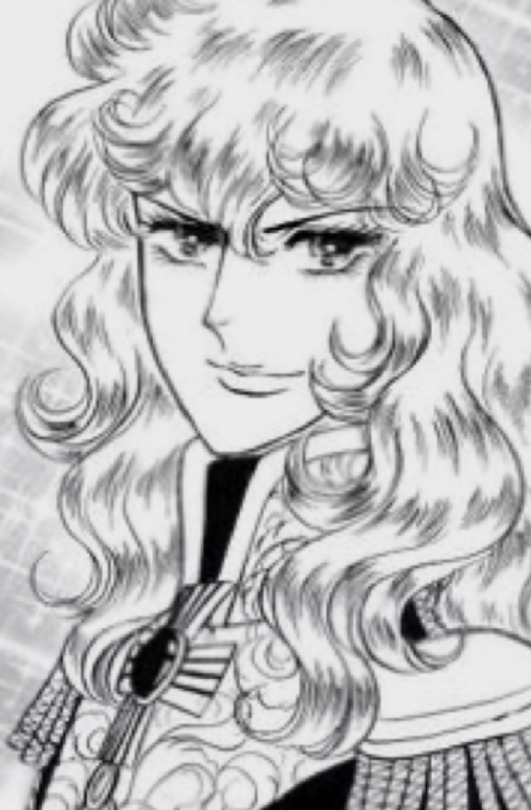
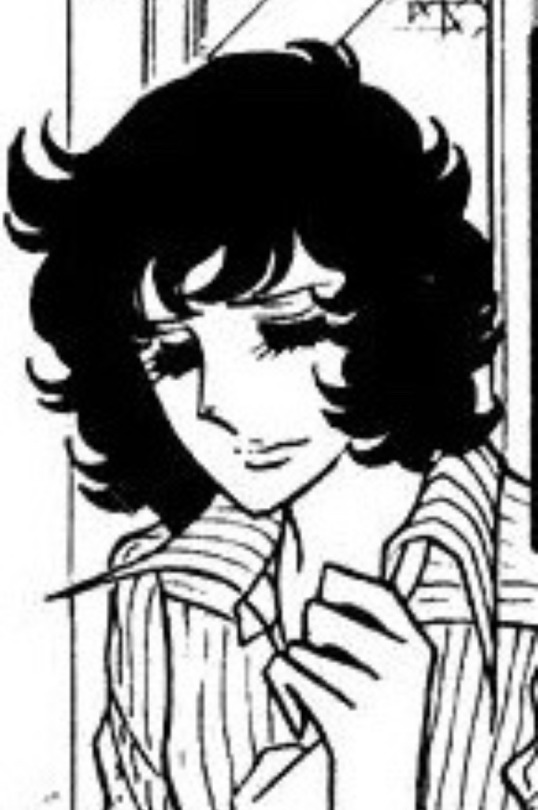
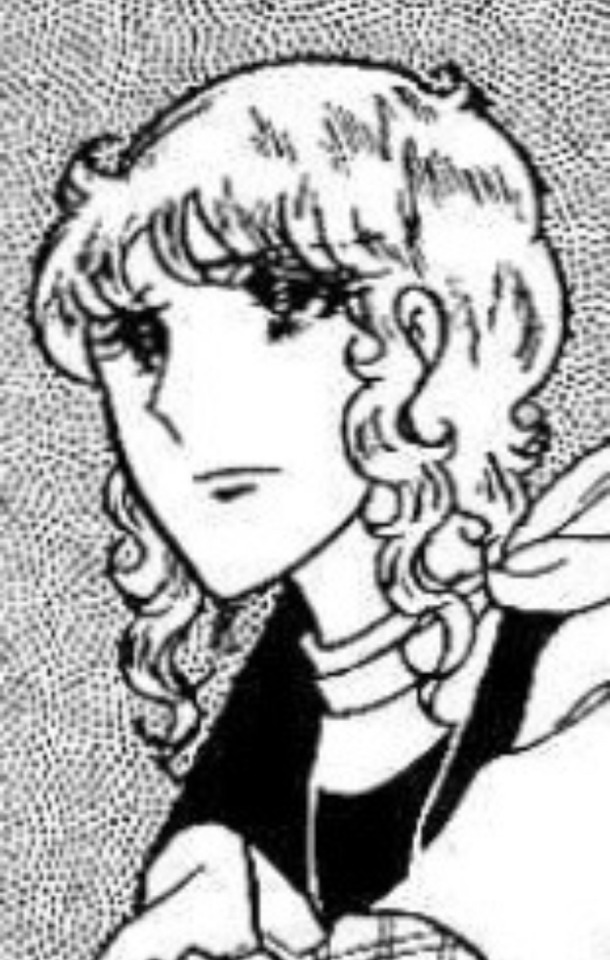
They are either mysterious, or lively, but one thing is for sure; they are dressed in clothes that are considered to be “manly”, they are handsome and they are constantly mistaken for a boy. They are also very elegant and educated and their image is that of a prince. That’s why they are admired by both women and men. Some may say that even though they are trying to be like a man, they are still weak, but they point out that just because they dress more “tomboyish”, doesn’t mean that it makes them less of a woman. After all, when they want to, they can transform into the most feminine girl of all. They also prove that their sexuality is not associated with their looks, as a “masculine” girl has the same possibilities of being heterosexual or homosexual, with a more “feminine” one. So, they break all the stereotypes regarding women. Many times, they are portrayed as headstrong heroines who stand up for their beliefs and their friends.
The most famous character that supports this image is Oscar from “the Rose of Versailles”. Oscar is one of the daughters of the Jerjeyes household. Not having any son, her father decided to raise her as a boy so that one day she will succeed him. Oscar dresses in boys’ clothes and learns activities like fencing and archery. When she was fourteen, she was tasked to serve as Marie Antoinette’s bodyguard. The manga often pointed out how different those two were regarding appearance and character, even if they were in the same age. Oscar has a strong sense of justice and she always protects the weak and is not afraid to challenge someone that she believes that isn’t right. Of course, she is admired by men and women alike and she is also a great and loyal friend. At one point she falls in love with Fersen, who loves Marie Antoinette. But because of her respect for the queen and her love of Fersen, she helps them, despite being heartbroken. At the end, she realises that she loves her childhood friend, Andre. She loves medieval combat, drinking heavy drinks, talking about politics and playing violin. Many pointed out that being a woman she was weaker but she always proved them wrong, pointing out that women can do anything and that it doesn’t matter if you are a man or a woman, only how skilful you are. She was hiding her femininity not because she wanted to be a man, but because that if she acted like a woman, the society might think that she was weak and she wouldn’t be able to have the access and the freedom to do what women normally wouldn’t do back then, because women were alowed to limited things. In the early 1970s, by the time this manga was ongoing, the second wave of feminism had already started and women started fighting for equal legal and social rights, so Oscar’s character was influenced by all this.
Rei from “Oniisama e”, is admired by her fellow classmates and is also called “saint Juste”, named after one of the leaders from French Revolution, due to her physical resemblance to him. She is very charismatic, excelling to sports, piano, guitar and theatre, she is very elegant and dresses often in a black suit. Unfortunately she is drug-addict, she smokes and can be suicidal, carrying always pills and a sharp object with her. She is also obsessed with Fukiko, the sorority’s president, for many reasons, causing her to be controlled and abused by her. She also lives alone in a depressing house filled with mirrors and this also causes to be depressed. Her best friend is Kaoru no Kimi, who’s also a tomboy, but they are entirely different and she befriends Nanako and her friends. In the end she suicides, taking too many sleeping pills, having everyone, especially Nanako, left devastated.
Also from “Oniisama e”, Kaoru, is a tomboy who is strong and energetic. She is athletic and excels at basketball, but she is also very cool and doesn’t seem to care that she is the best at something that she’s doing, that’s why she is admired by her fellow classmates who gave her the nickname “Kaoru no Kimi”, from a Japanese classical novel; “the tale of Genji”. She also has a great sense of justice, as when she sees classmates being bullied, she defends them and put the bullies on their place. She is also very loyal and supportive and cares deeply about her friends, helping them when they are in need, especially her best friend, Rei, for whom she is very concerned. But in spite of her energetic appearance, she suffers from breast cancer and tries to keep it a secret, pretending that she is healthy and that everything is under control. But in fact, she pushes away her beloved, Henmi Takehito, concealing her true feelings, in order for him to be happy without her and not suffer anymore, showing how selfless she is and how much she loves him to a point of sacrificing her own feelings. At the end, it pays off and they end up together, living happily.
Another honourable mention is Rei, from “Glass Mask”. Rei is the older student of Tsukikage sensei’s company and one of Maya’s best friends. She is a tomboy who wears those characteristic 70s jeans and for some reason is mistaken by a boy -much to her dislike-, despite of being obvious that she is a girl. Being an actress, she can transform into a beautiful princess in no time, but she also portraits very well a prince. In the first volumes, she portrayed Jo, from “little women” which was a role very suited for her. As a sister figure for Maya, she is loyal, friendly and the responsible one who helps the theatre company stay organised and is a very strict teacher to Maya, helping her because she knows her potential. Also from “Glass Mask”, Keiko from the “Ikkakuju group” is also mistaken as boy, but she can transform into a pretty princess in no time.
Note: At the first half of the 20th century “Little Women” were very popular in Japan, particularly Jo, who was tomboyish and outspoken and her character had inspired the first female mangakas of the 60s for their stories and characters.
#retro shojo#shojo manga#70s manga#80s manga#glass mask#Tokimeki tonight#haikara san ga tooru#Oniisama e#the Rose of Versailles#Candy Candy#Yokohama monogatari#aim for the ace#character types#Shojo
231 notes
·
View notes
Text
Imagine being the reincarnation of Dracula's long lost love: part 10
Part 1 Part 2 Part 3 Part 4 Part 5 Part 6 Part 7 Part 8 Part 9
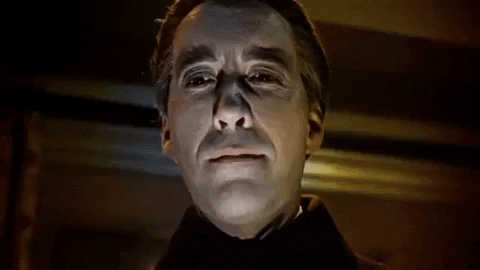
Dracula helped you out of the coffin and held you close in his arms, not wanting to ever let you go again.
"Vlad, I was so scared." You told him, pressing your face into his chest.
"Me too." He said, stroking your hair. So he was right after all. You were Maria. You had finally come back to him at last.
You still felt weak and held on to Dracula for support. Not only did you feel weak, but you felt... different. You didn't know what it was, but it was like all your senses were maxed out. It was so overwhelming. There was also this new scent that you discovered. It smelled delicious, but what was it? You wondered looking around trying to find the source.
"What did you mean that you remember everything?" Van Helsing asked, concerned for you.
You faced him, realizing just where that smell was coming from. Your eyes shined bright red, an intense hunger in them...hunger for blood. Normally you would have been repelled by such a thing, but right now you needed it more than ever. Van Helsing watched you nervously as you inched toward him.
"Y/N?" He said nervously backing away, but you did not answer. All you could think about was his blood, the taste of it on your lips. Dracula noticing your odd behavior, grabbed you by your shoulders and held you back. Why? He did not know. He had wanted to kill Van Helsing himself earlier. Perhaps he was trying to prevent you from doing something you would regret.
You squirmed, trying to wriggle free, but Dracula held you firmly in place. "Let me go!" You hissed at him, revealing for the first time your fresh new set of fangs. Van Helsing stared at you wide eyed. What had he done? You were no longer the sweet, brave, and kind Y/N, you were now a monster. He should never have let Dracula turn you. But then you would be dead...looking at you now, maybe it would have been better that way. He just lost it in a moment of grief.
"Calm down, darling." Dracula spoke in a soft voice, trying to soothe you. "You will feed soon, I promise."
Van Helsing glanced up at him. "What do you mean?"
"She is in a very crucial time right now. She needs to feed." Dracula urgently explained to him.
"So what will you do, go kill another innocent person?" He asked, raising his voice.
"We have no choice."
Van Helsing sighed. "Then she can have some of mine."
"That is not necessary, Doctor Van Helsing." He refused.
"Yes it is. I won't have you or her killing anyone else. I'll run into town and get my supplies. I'll be back soon." He said, buttoning up his coat, turning to leave.
"Henry, take the coach if it's still there and take him home." Dracula ordered. Henry nodded and promptly followed Van Helsing out.
A few minutes later the tapping of horseshoes against the ground could be heard as they disappeared into the night leaving you and Dracula alone. You closed your eyes and let out a long sigh, then looked up at him.
"Is that what it's like for you all the time?" You asked, now realizing how difficult life was for him. How tempting it was to feed on human blood. Even now with no mortals around, you desired it. Dracula simply nodded. "It's horrible...I can't believe I wanted to...to..." You winced at the thought of hurting, maybe even killing Lawrence. He wrapped his arm around your shoulder and held you close.
"Come, let's wait for them upstairs." Dracula said, guiding you from the dungeons and up the stairs. When you reached the entry hall your mouth fell open in shock. This was the first time you had seen the castle in ruins. You felt a very intense anger. How dare the townspeople do this to your home, to Dracula's home!
"What do we do Vlad?" You ask, looking around. He squeezed your shoulder and replied, "We'll find some place else. Anywhere is home as long as I have you."
As you waited for Van Helsing to return, your mind wandered. You thought about how strange fate was. In your previous life you were married to Dracula and Van Helsing was his power hungry step-brother who killed you. In this life you were Van Helsing's friend who ultimately reunited you with your lover.
"What's wrong?" Dracula asked, noticing how quiet you had become.
"I was just thinking. What happened after...after I died all those years ago?" You asked. Dracula knew this question was inevitable now.
"Well, Van Helsing fled and joined the Turks. Soon after, we went to war and I was killed during one of the battles. As I lay there dying from my wounds, the devil appeared to me. I sold my soul and in return I would have my revenge on the Van Helsings." He told you.
"That's when you became one of the living dead?" You asked. He nodded. "But Lawrence doesn't know about any of that. He told me he wanted to get rid of you because he thought you were a threat to humanity."
"He's right. I am." He admitted. "I didn't care how many lives I took. How much blood I spilled. None of them mattered as long as I didn't have you. I was just as ruthless in life as I am in death."
"And now?"
He paused for a moment, thinking. "I don't know..."
Suddenly, from out of the wreckage you heard some rustling followed by a series of painful moans. Dracula pushed you behind him ready to attack whatever it was. From beneath the debris, a man crawled out. He was covered in dirt and blood, the smell instantly flooded your nostrils. "H-help me..." The man pleaded as he slowly pulled himself across the floor. Dracula looked over at you and saw the hunger return in your eyes and how you licked your lips, desperate for just a little taste. He didn't want to admit how turned on he was by this. He smiled and stepped aside, letting you pass. He wasn't about to let you miss out on your first meal.
Your eyes were fixed on the man before you, like a predator staring down it's prey, waiting for the right moment to pounce.
"I'll help you." You lied, your voice sounding menacing.
"Oh, thank you I-" He peered up at you and saw what you had become and let out a blood curdling scream. "Nonnnoo! Please!" He cried, cowering away, but you didn't hear him. You were focused on one thing. You grabbed him by his collar and lifted him off the ground making him eye-level with you. You hesitated for a moment. You knew you shouldnt. That this was bad, but he did try to kill you and your love after all. He deserved it. Your mouth was practically watering as the sound of his pulse pounded against your eardrums. Dracula stood behind you and whispered in your ear, "Do it." Before the man could utter another plea for mercy, you sunk your fangs deep into his neck. His blood dripped down your lips and chin as you sucked every last drop from his body. Dracula wanted you now more than ever. You moaned and threw your head back enjoying the taste of blood as it ran down your throat. Once you were finished, you tossed the corpse back into the rubble he crawled out of.
"How do you feel now?" Dracula asked, eyeing you lustfully. You grinned at him. "Much better, darling." You answered in a husky voice, running your finger under his chin. Unable to resist you a moment longer, he twirled you around and pressed you flush against him. Leaning down he licked some of the blood from your lips, then he roughly pressed his mouth on yours. He could still taste the blood as he slipped his tongue inside. It drove him mad. You couldn't help but let out a moan when he suddenly nipped your bottom lip as he pulled away. You both stared longingly into each other's eyes for what felt like an eternity.
You went to kiss him again, but were interupted when Henry and Van Helsing returned.
"Y/N! What have you done?!" He exclaimed noticing the fresh blood around your lips, running towards you. He looked down at the man's lifeless body, a horrified expression on his face. "You killed him..."
"What of it?" Dracula sneered.
"Don't you understand? She killed an innocent man!" He yelled.
"He wasn't so innocent when he tried to kill us." You quickly pointed out.
"Y/N, why? I thought you were better than this."
"I guess I'm not who you thought I was." You said coldly. Van Helsing felt his heart break again at how much you changed. He wanted to take you far away from here, far away from Dracula. To try to find a way to get his Y/N back. He'd rather you be dead than live out eternity like this...Van Helsing sighed. He had no other choice. He had to kill you and Dracula before it was too late.
"I guess not." He agreed. "There's nothing more I can do if this is the life you've chosen. I'm leaving for London tomorrow." Dracula eyed him suspiciously. Was he really willing to just leave you alone? To just ignore the fact that you might kill again. Did he really care for you that much?
"Will I ever see you again?" You asked, still wishing to remain friends. Even though his ancestor had murdered you in your past life you didn't hold it against Lawrence. He was different.
"No, I don't think so." He replied, looking away.
"I'm sorry to hear that." You said sadly, but you understood.
"I am as well." Van Helsing said. You pulled away from Dracula and went over to your friend, pulling him into a hug. Why did you have to do that? He thought. It only made things more difficult for him. He knew the real you was still in there somewhere, but the vampire took her place leaving a shell of what you once were. You placed a quick peck on his cheek and backed away.
"Goodbye, Y/N." He said, knowing that this was the last time he was going to see you alive, knowing that when the sun came up it was up to him to end your damned existence. He turned and left without another word.
Dracula felt your distress and wrapped you in his arms in a comforting embrace. It was getting close to dawn now. He needed to find you a coffin before daylight broke. So, after he knew you were alright he left with Henry to the local cemetery to find you a coffin.
You wandered the castle ruins thinking about Lawrence. He had been your only friend in the world till now. No one else had stopped to give you a second thought, but he did. He was there for you when no one else was. At one point before you came to Transylvania, you thought you loved him, but he was too involved in his work. His work was his ultimate passion, and you knew you couldn't compete, so you never did. You sometimes wondered what it would be like if you had chosen a life with Van Helsing. Would you be a silly little domestic couple with a house and kids? It was an amusing thought, but neither of you were the type.
Finally, Dracula and Henry returned a little while later carrying a coffin. It wasnt anything fancy, but it would do. Perhaps later, you could get a better one. Sunlight started peeking in through the windows as they hurriedly carried it into the dungeons, placing your coffin beside Dracula's.
"Too bad they don't make couple's coffins." You joked.
"Maybe we could have one made." He teased, kissing your neck where he had bitten you, making you shudder. "I love you." You said softly running your fingers through his hair.
"I love you too." It was so pleasant to hear him utter those words. You wanted to hear him say it again and again.
"Sleep well, darling." You said with a yawn, as you lay down suddenly feeling tired. You took one last look at him before shutting the lid. This wasn't an ideal lifestyle, but you loved him and that's all that mattered.
The sun rose into the sky and the birds began to sing their morning song. It would have been a beautiful day if it not had been for the task that Van Helsing had set out to do. He crept back inside the castle, bag in hand, being careful not wanting to draw attention to himself. He stood in the doorway to the dungeons, contemplating his next move. His chest was heavy as the thought about driving a stake into your heart. But he had to do it. He slowly opened the door and walked inside, and down the flight of stairs to the room where Dracula's coffin had been earlier. Now he noticed, that there were two coffins lying side by side, one belonging to you.
He reached inside his bag and pulled out a hammer and a couple of stakes. Van Helsing strode over to your coffin and pulled open the lid. Inside, you lay looking peaceful and content, a small smile on your face. If only it didn't have to be this way...
He pressed the stake between your breasts and raised the hammer high into the air, ready to strike. But he couldn't. The longer he stared down into your beautiful face, the harder it became to do it. He closed his eyes. Maybe if he didn't look at you...But he just couldnt. Why was this so difficult?
Suddenly, a voice shouted out behind him startling him. "Hey! What are you doing?!" Henry shouted, running at him, tackling him to the ground.
"Stop!" Lawrence yelled, shoving Henry off of him. Not listening, Henry raised his fist and slammed it into the side of Van Helsing's face, quickly tearing the stake and hammer out of his grasp.
He shook his head, feeling dazed for a moment.
"How could you do that?! I thought you wanted her alive?!" Henry asked throwing away his weapons across the room.
"I did, but after seeing what she has become I couldnt let her live like that...but I can't do it. I can't release her from this curse....It's all my fault." Van Helsing sobbed, his head throbbing. This is why he never let anyone get close to him in the first place. He had only himself to blame for this. There had to be another way and he was going to find it by any means necessary.
#not my best work#pretty satisfied with it tho#i think this might have more parts than i planned#hope you guys like it!#dracula x reader#van helsing x reader#hammer dracula#x reader#reader inserts#christopher lee
78 notes
·
View notes
Text
SANDERS SIDES KARAOKE: GOTHIC LITERATURE MUSICALS EDITION
Okay, so after four years of being in the Sanders Sides fandom, I’m going to attempt to write some headcanons. Here we go.
Since it’s well-known in fanon that the sides do have karaoke sessions, imagine what would happen if they sang musicals based on gothic literature.
Roman’s happy because broadway, duh, Logan is happy because it’s canon that he enjoys gothic literature since he dressed up as Frankenstein’s monster for Halloween, same reason for Virgil and Patton’s happy that his family is bonding. He made extra cookies for the occasion. He’s dangerous like that.
(I headcanon that when Thomas had to write analyses of gothic literature novels for school, Virgil, Roman and Logan would work together to come up with stuff and write the best essays in class and Patton would be so proud of them)
I’m not going to count Les Mis because I’m not too sure if that counts as gothic literature and whilst the Hunchback of Notre Dame is indeed gothic (trust me I read that in a plane once. An entire, like, ten pages is dedicated to describing the scenery) I don’t think it became a broadway show.
Now this isn’t like their usual karaoke nights, no sir. Just idly remaining in the living room won’t do. Where is the gusto? The pizazz? The accolade winning extravaganza? The-
“We get it Princey, can you just get on with it?” - Virgil
No, this type of singing can only be accompanied with an atmosphere that will do it justice. To the imagination they go and with Logan’s (who has practically memorised every single one of these books and is not geeking out at all) input on how the novels describe each setting, Roman creates very intricate landscapes for each song.
When they sing ‘Alive’ from ‘Jekyll and Hyde’ Roman thought that it would be really cool for Patton to play Mr Edward Hyde since Hyde is literally the human id and Patton, being the embodiment of morality, is literally the superego (although to be fair, Patton is also shown to be quite childish and impulsive since he’s also the base of Thomas’ emotions and Hyde is impulsive because he’s a way for Jekyll to act on his own emotions - especially since the only crime that Hyde does in the book are him over-reacting with his anger by beating a man to death. And in the novella, Jekyll writes that he and Hyde are like father and son and that Hyde is actually younger than Jekyll is, he does have that sense of childishness that Patton has only instead of that childishness being good and helpful, it’s bad and hurtful. Plus in the soundtrack of Alive, whilst Anthony Warlow does sing about how good being evil feels like, he also sounds like he is crying tears of joy of being able to be himself, the first words post-transformation being freedom and anyways these are supposed to be fun headcanons not analytical headcanons so I digress…)
Anyways Patton is happy to play the villain because “look kiddos, Roman conjured up this really swell cape” “the correct term is cloak” “and check out this top hat and cane!” and he’s just belting out the words and froliking around Victorian London without a care in the world, making his cape swoosh in the wind.
“Patton I would advise you not to take your shoes off. This is nineteenth-century London with people dying of cholera by the dozens, your feet could catch a myriad of infections.”
“Worry not, specs, the scenery is merely an illusion. I would never allow for our dear padre to succumb to the villain of illness”
“Aww, thanks kiddo (cue Patton’s sunshine smile) now where was I? IT’S THE FEELING OF BEING ALIVE! FILLED WITH EVIL AND TRULY ALIVE!”
They have Logan sing ‘I Need To Know’ because a doctor of science singing about wanting to expand his knowledge and having that thirst to do whatever it takes to get said knowledge. That is a Logan Sanders song right there. At first he’s like “why do I have to sing. I was happy enough giving directions and helping you with the scenery” but Roman creates this big scientific library that could rival the one from Beauty and the Beast/ laboratory from that’s practically the identical to Jekyll’s lab in the book and he’s like “Fine” like he isn’t enjoying himself. He is. They all know it. He’s not fooling anyone
Patton and Roman sing ‘Bring on the men’ together (yes, whilst wearing dresses) whilst Virgil and Logan drink apple juice from those big british beer glasses in the mind-scape created Red Rat (which Logan is quick to point out doesn’t exist and is vocally upset at how the musical adaptation added unnecessary romantic subplots with Lisa and Lucy when the book itself only had three background female characters who were only there for like one paragraph. He’s even more upset at the other inaccuracies with the book like how in the play Jekyll creates his formula as a cure for mental illness and Hyde was accidental whilst in the book he did it because he wanted to indulge in sin without fearing the consequences and Hyde, whilst not being exactly what he wanted, was actually created on purpose or how in the book Hyde only kills one man and in the musical he kills practically everyone except for the one person he did kill. Virgil pats him on the back with sympathy). Roman and Virgil are sniggering at the sexual euphemisms at the end of the song whilst Patton’s confused. She just seems really enthusiastic about food.
Roman sings both parts of ‘Confrontation’ by himself. He gets a standing ovation.
He also does ‘Transformation’. The problem is that he was so good at sounding like he was in complete agony and near death that they had to stop the song prematurely because Patton was getting upset. Don’t worry, Pat gets lots of cuddles by Roman afterwords.
(You know what I might do some sides reacting to The Strange Case of Dr Jekyll and Mr Hyde later because 1. It’s my favourite book and 2. All four of them would have very interesting takes on it)
From the Frankenstein musical Virgil plays the criminal from ‘Say Amen’ because he wants to (seriously, the guy’s first words in the song are ‘I curse the day that I was born into a world so black with hate’) and Logan plays Victor Frankenstein but Patton refuses for his son to even pretend to be executed by the noose so they have Roman play a man wearing a british executioner outfit with a foam sword and the creative side just bonks the anxious side on the neck with it. Logan despairs about the historical inaccuracy from his place in the stands whilst Patton is cheering next to him. Patton also hands him an extra jumper to keep him warm in the Switzerland cold.
“Patton, I am grateful that you are thinking of my health but no one in eighteenth century Switzerland wore bright blue jumpers with cartoon kittens on them”
“Really, Logan, are you paw-sitive?”
“I would like to change places with Virgil. Immediately”
Roman and Logan turn ‘Birth to my creation’ into a duet because Logan enjoys the scientific aspect of it and Roman can’t resist the drama (of course). He goes all out. He makes Victor’s lab perfect to the smallest detail (and cheers when Logan’s eyes start lighting up and he does that cute clappy thing when he’s excited), he conjures a storm and makes lightning strike at the best moments of the song. He even creates a ‘wretch’ (what Victor calls the monster in the book. I’ve heard that it’s name is Adam but all I remember from the novel is Victor calling himself god and the creature his Adam) to lie on the table.
“And we didn’t even have to go grave-robbing for it. Or drop out of University.” - Roman
“No matter how many times I wanted to.” - Virgil
Roman and Virgil do most of the songs from Dracula. The creative side creates this huge, expensive-looking window-balcony thing with glass double doors and billowing silk curtains so that he could dramatically sing ‘the longer I live’ whilst the wind blows through his hair and he dramatically drapes himself on the balustrade so that the light from the full moon hits his figure just right. Patton’s close to crying.
Logan is very eager to give as many facts as he can about nineteenth-century mental institutions for ‘The Master’s Song’. He gets really into the history behind certain treatments and different cases. Roman plays Renfield and the others play doctors.
Virgil is super into Dracula’s castle during ‘Life after life’. He and Roman duet that song wearing all-black. Logan tries to help Patton’s slight fear by telling him the history behind different pieces of architecture.
Patton plays Christine during Phantom of the Opera
Roman, Virgil and Logan sing ‘A story told’ from The Count of Monte Cristo around a circular table in a dimly lit tavern. Patton takes pictures and drinks hot chocolate in the sidelines.
#sanders sides#sanders sides headcanon#logan sanders#patton sanders#virgil sanders#roman sanders#lamp#calm#lamp/calm
29 notes
·
View notes
Text
Castlevania Season 4
So I just finished watching Castlevania season 4.... And damn that was such an emotional rollercoaster. My thoughts under the cut.
I knew that Isaac would be the one to end Carmilla and what I've got is an absouletly gorgeous fight scene. I was rooting and screaming for Isaac throughout the whole fight. Like "YES ISAAC FUCK THAT BITCH UP." lol I'm not gonna lie, I wanted her to die in the worst possible way since I met her in season 2, I just can't stand her. Even her sisters didn't give a fuck about her death except Lenore.
Also Saint Germain, you fucking piece of an asshole...
The Trevor, Sypha, Alucard reunion? I LIVE FOR THIS. I'm not even exaggerating but I cried from happiness. And the hype man. It was really so good to see the main trio back together in action.
That fucking vampire guy from London was Death all along? Now that's what I call a plot-twist. I wouldn't even guess lol.
And the most important thing of all... Like the procuders, story-writers or whatever. You didn't have to make me suffer like damn, I cried my eyes out when Tevor said "I love you" to Sypha and literally went to a suicide battle with Death. I cried so much thinking that he will die and couldn't even focus on the fight. I was begging for Trevor not to die. AND YOU HAD ME THERE! I REALLY THOUGHT HE DIED! And then at the end when he came back I was crying again from happiness and say "FUCK YOU! YOU MADE ME GO INSANE MAN! HOW ARE YOU EVEN STILL ALIVE?" Not gonna lie, the relief and happiness of seeing him again was everything. I can't even express my love for this man.
And Sypha is pregnant! OMG I live for this ship. Please let them be happy, for the love of God. I'm not really into Greta and Alucard as a ship, I prefer it more platonically tbh (Also yeah I wanted Maria but time-wise it wouldn't make sense so yeah)
What was the point of Lenore's suicide btw? I mean, I don't even care but she was just so depressed and wanted to die? She doesn't want to live in a cage? Well, that's what you've been doing to Hector before. Hello? Consequences?
Also, what the actual fuck? How did Dracula and Lisa come back? I'm happy for them but still, it just doesn't make sense.
Anyway, that was just my thoughts. Overall, I really enjoyed this season. The conclusion was nice. I wish we could've seen the baby Belmont but I'm fine with it. Thank you to the people behind the production for making Castlevania an animated series. I loved it so much regardless of its flaws (coughseason3cough). Still, thank you for making this possible.
#Castlevania#castlevania netflix#castlevania season 4#castlevania spoilers#castlevania season 4 spoilers
10 notes
·
View notes
Text
Vlad
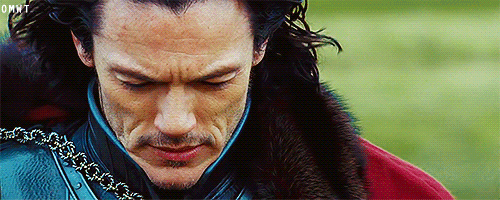
GENERAL INFO
FULL NAME: Vladislaus Draculea
SPECIES: Human / Vampire
AGE: Verse Dependent
PLACE OF BIRTH: Romania
GENDER AND ORIENTATION: Male / Bisexual
PHYSICAL ATTRIBUTES
HEIGHT: 6′2
HAIR COLOUR: Brown/Black
EYE COLOUR: Green
DISTINGUISHING MARKS: Scar in the middle of his chest from a stake
BACKGROUND INFO
LANGUAGES: Too many to count lol he’s old so he had time to study many languages
OCCUPATION: Verse Dependent
VERSES
SYNOPSIS
{ My variation of Vlad comes from both historical and film (Dracula Untold) influences. Some historical sites vary a bit with information but generally they are all the same in context. }
Vladislaus Draculea was one of three sons of Vlad Dracul II, who ruled the principality Wallachia from 1436-1447. Vlad Dracul II sold his 11 year old son Vlad to the Ottoman Sultan to show his loyalty. As a result, Vlad was forced to fight among other boys his age and older in the armies, trained only to kill and feel no remorse. Though that was the only downside to staying with the Sultan. He was taught various subjects and cared for as if one of their own.
Brainwashed by the Ottomans, Vlad unfortunately became nothing but a cold blooded killer and the most skilled and valued soldier in the Sultan’s armies. Once he was 18 though, he broke away from the Ottomans and returned to his home in Wallachia where he fought for the throne and won, becoming the new Voivode, or Prince, of Wallachia.Vlad ruled in peace for fourteen straight years, ruling with an iron fist and yet was fair. Then Mehmed II, the new Sultan and former comrade of Vlad’s when he was in the Ottomans armies, proposed a deal with Vlad that he give him 1,000 of Wallachia’s boys including his own son, or there would be war. Vlad desperately tried to negotiate, even offering himself in the place of the boys, but Mehmed wouldn’t budge. And so, war was declared.
Knowing he couldn’t win the war on his own and with little men in his army, Vlad sought out a monster of darkness, Caligula, in a cave high in the mountains. For a price, Vlad was turned into the very monster he sought out. The war came to a head on the third day as Vlad swooped in with an army of freshly turned vampires. Thousands of men perished on the fields and Vlad was able to defeat Mehmed and his men. But the price he paid for the victory was great; he lost his loving wife Mirena due to falling off a tower and sacrificing her own blood to Vlad so he could remain a vampire and save their son from the clutches of the evil Sultan. And Ingeras, Vlad’s ten year old boy who witnessed too much for his age, was taken by a fellow friar from Vlad’s old monastery to be kept safe, and would eventually rule Wallachia in his father’s place.
Once Mehmed and his men were defeated, Vlad burned his own army of vampires in the sun’s light, including himself, so that future generations would be kept safe from their harm. But a follower of Vlad’s found him and revived him by giving him his blood, and thought he’d walk eternity with his newfound master. Though, when Vlad was alive once again, his thirst for blood took over and he drained the man completely. It was then that Vlad fled, and for days sought out refuge in the Carpathian Mountains. There, tucked away from the world, was an old abandoned castle where he then made his permanent residence and hid in the shadows for years to come…
VLAD MUSAT (Main/Modern Verse, Aged 32 ; FC: Luke Evans)
Vlad is currently just under 600 years old, and a CEO of his own restoration company, ReVamp Restorations, INC. The company restores old landmarks, buildings and homes, and is expanded globally. He lives in London, England, and has a house in his homeland of Romania which he visits on holiday. Vlad changed his last name to his mother’s maiden name so he would not be recognized. He isn’t usually around others outside of his job, and his quiet time consists of more work due to his need to constantly be occupied.
FROM PRINCE TO BEAST (After the war with Mehmed II)
No longer the voivode for Wallachia, Vlad has hidden away high in the Carpathian Mountains, dwelling in an abandoned and long forgotten castle. Weary travelers or people who have gotten lost on their journeys sought shelter in the castle and Vlad happily took them in, but for a price: that they would serve him forever. They’ve agreed, and happily serve him regardless of knowing what he is and who he once was. His servants are his only real company and Vlad has looked to them as an almost family to him.
HE WHO STILL REIGNS (After the war with Mehmed II, Alternate Ending)
Vlad has returned after fighting and defeating Mehmed, taking his place on the throne once more. Only this time, he is a vampire. He now rules over the lands Mehmed once did, except he is not known as Sultan, he remains Prince. His dwellings are still within Wallachia which is newly rebuilt, his army becomes vast and stronger than any other army around, and though weary of others, he still rules as he once did. His heart is heavy with the loss of his wife, and the duty of raising their son on his own. But he does everything and anything for Ingeras so he doesn’t have to suffer anymore than he already has.
THE COUNT (1880 - early 1900s ; very loosely based on Bram Stoker’s version)
London’s new resident is a centuries old vampire, having just bought into real estate. Vlad Dracula leads a quiet life, not bothering anyone as he tries to make his life somewhat normal. He prays upon people, though not savagely, and drinks only enough for him to be satisfied. Afterwards, he heals them with his own blood and wipes away their memory of anything that had transpired between them.
PRINCE OF WALLACHIA (Pre war with Mehmed II)
Vlad is Voivode to Wallachia, and is reigning peacefully. His rulings are fair and his people adore him. He is not married, and not with any children. Vlad’s adviser pushes him to marry someone already to give him an heir, but it is not something Vlad is in a rush for even though he wishes to have a family of his own someday. Vlad is always holding Council with his noblemen or working on kingly duties, but one can find him constantly with his nose in a book, learning something new and enticing.
*Alternate Version*
Vlad is Prince, and ruling with Mirena. This takes place a year before the war with Mehmed.
CHIEF INSPECTOR IONESCU (1850s ; Aged 30)
Of Romanian descent, Vlad’s family had moved to England in the early 1800s for a better life. His father became wealthy in the railroad business, and Vlad went to Oxford where he graduated top of his class in both criminal justice and anatomy. He soon began to work for London’s Scotland Yard. Vlad was quick to move up the ranks due to his vast knowledge in the field, and became London’s youngest Chief Inspector at the age of 30. His work always consumes him, never allowing him to keep a steady relationship and miss out on important events his family hosted almost monthly. And though it bothered him, his job to keep the streets of London safe were more important.
HUMAN (Modern day, Aged 33)
Vlad Dragan was raised in Romania along with his three brothers on a vast farm. Having ambitions far bigger than the life he was meant to have, Vlad made sure he excelled in school before getting a scholarship for Oxford in London. There, he studied History and Archaeology, and became an archaeologist. His job has taken him all over the world, but his home base remains London, and he works as both an Archaeology professor in Oxford as well as studying artifacts in England’s Natural History Museum.
WIZARDING WORLD (Taking place throughout the HP series, Timeline varies)
A vampire as a professor? Vlad is! Vlad works at Hogwarts as a History of Magic professor. He doesn’t socialize too much with others outside of when classes are in session, but he does attend every school event and never misses a meeting. He is also a Hufflepuff (I personally think he’s a hybrid of Hufflepuff and Gryffindor…so Gryffinpuff. But to be technical, Hufflepuff).
VAMPIRE KING (Tolkien semi-loosely based, takes place during ‘The Hobbit’ and on; also, using Welsh as the language for Men in my verse since there are hardly any translations in Adunaic, and Welsh is a pretty awesome language so try not to correct me on this for all you super Tolkien canon fanatics)
Vlad Alastor is Edain, from the House of Marach during the First Age. He lived in Dor-lomin, part of Hithlum, and ruled as King for many prosperous yet tough years. But Morgoth struck war upon the lands, and Vlad knew his army wouldn’t be enough to win the war. He sought help from a dark, magical being living in the mountains that turned him into a fampyr (my own derivation from the Welsh spelling for vampire) for a hefty price of his soul once the time came. As Nírnaeth Arnoediad occurred, most of Vlad’s army was defeated but he himself was able to defeat the enemy, driving away the evil forces. But due to Dor-lomin crumbling away from the war, and more evil forces eventually ascending upon the country, Vlad was overthrown as king and banished from the lands he grew up on and ruled. Having an idea, he faked his death, and Vlad ran as far away as he could. Many, many years had passed, and by the time of the Third Age, Vlad is king in Rhun, his residence lay beyond the Sea of Rhun.
ABILITIES AND WEAKNESSES
|+|IMPORTANT|+|
Vlad is part of a bloodline he solely shares with his superior, Caligula: the vampire who turned him, due to having no choice but to dwell in a cave for eons until he was able to pass on his powers to Vlad and set himself free. Therefore, his abilities and weaknesses are different from any other bloodline. His transformation is different, as well as the way he turns others, which never happens unless it happens in a thread.
|+| ABILITIES |+|
~Shapeshifts into bats~Manipulates bats at his will~Super strength and speed~Heightened sight, smell and hearing~Weather manipulation (to an extent)~Mind manipulation (to an extent)~Healing. Very small increments of his blood, when taken via mouth, can heal a person. There is no guarentee that it can revive a person if they are dying.
|+| WEAKNESSES |+|
~ Silver~ Wooden and silver stakes (both fatal if directly piercing his heart)~ Direct sunlight
|+| OTHER INFORMATION |+|
~ Vlad sleeps, but only for a few hours. He needs to be in a completely dark room in order to sleep soundly, or else he’ll be quite irritable.~ Vlad is able to walk during the day while using his weather manipulation powers to cover up the sun’s harmful rays with clouds.~ Holy objects do not harm Vlad. It isn’t specified why in the film, but for RP purposes, it’s due to him being so in-tuned with his religion even when he was turned that his God saw the good in him regardless of the fact he was a now a monster (his religion during the time was and remains to be Orthodox).~ Vlad can eat food but chooses not to usually. The taste of food has not faded for him even though he is a vampire. He does not crave food, nor does he need to live off it, therefore he doesn’t really eat anything unless it's to keep up appearences. Vlad lives off of animal blood mainly, but knows a guy that slips him blood bags from a blood bank to keep in the house.
13 notes
·
View notes
Text
A Horror History of Werewolves
As far as horror icons are concerned, werewolves are among the oldest of all monsters. References to man-to-wolf transformations show up as early as the Epic of Gilgamesh, making them pretty much as old as storytelling itself. And, unlike many other movie monsters, werewolves trace their folkloric roots to a time when people truly believed in and feared these creatures.
But for a creature with such a storied past, the modern werewolf has quite the crisis of identity. Thanks to an absolute deluge of romance novels featuring sometimes-furry love interests, the contemporary idea of “werewolf” is decidedly de-fanged. So how did we get here? Where did they come from, where are they going, and can werewolves ever be terrifying again?
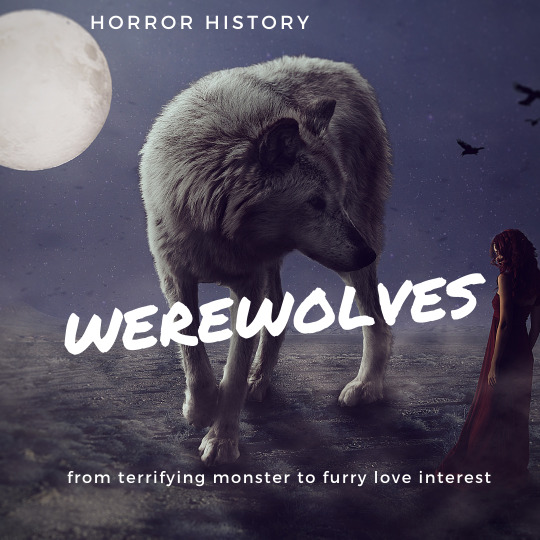
Werewolves in Folklore and Legend
Ancient Greece was full of werewolf stories. Herodotus wrote of a nomadic tribe from Scythia (part of modern-day Russia) who changed into wolves for a portion of the year. This was most likely a response to the Proto-Indo-European societies living in that region at the time -- a group whose warrior class would sometimes don animal pelts and were said to call on the spirit of animals to aid them in battle (the concept of the berserker has the same roots -- just bears rather than wolves).
In Arcadia, there was a local legend about King Lycaon, who was turned to a wolf as punishment for serving human meat to Zeus (exact details of the event vary between accounts, but cannibalism and crimes-against-the-gods are a common theme). Pliny the Elder wrote of werewolves as well, explaining that those who make a sacrifice to Zeus Lycaeus would be turned to wolves but could resume human form years later if they abstained from eating human meat in that time.
By the time we reach the Medieval period in Europe, werewolf stories were widespread and frequently associated with witchcraft. Lycanthropy could be either a curse laid upon someone or a transformation undergone by someone practicing witchcraft, but either way was bad news in the eyes of the church. For several centuries, witch-hunts would aggressively seek out anyone suspected of transforming into a wolf.
One particularly well-known werewolf trial was for Peter Stumpp in 1589. Stumpp, known as "The Werewolf of Bedburg," confessed to killing and eating fourteen children and two pregnant women while in the form of a wolf after donning a belt given to him by the Devil. Granted, this confession came on the tail-end of extensive public torture, so it may not be precisely reliable. His daughter and mistress were also executed in a public and brutal way during the same trial.
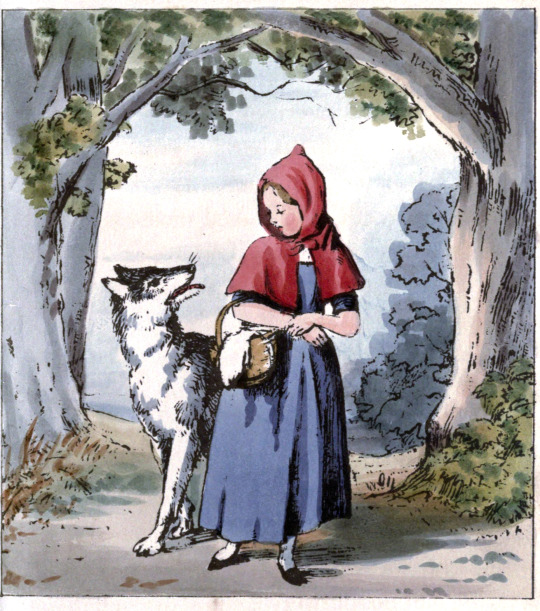
Who’s Afraid of the Big Bad Wolf?
The thing you have to understand when studying folklore is that, for many centuries, wolves were the apex predator of Europe. While wolf attacks on humans have been exceedingly rare in North America, wolves in Europe have historically been much bolder -- or, at least, there are more numerous reports of man-eating wolves in those regions. Between 1362 and 1918, roughly 7,600 people were reportedly killed by wolves in France alone, which may have some bearing on the local werewolf tradition of the loup-garou.
For people living in rural areas, subsisting as farmers or hunters, wolves posed a genuine existential threat. Large, intelligent, utilizing teamwork and more than capable of outwitting the average human, wolves are a compelling villain. Which is probably why they show up so frequently in fairytales, from Little Red Riding Hood to Peter and the Wolf to The Three Little Pigs.
Early Werewolf Fiction
Vampires have Dracula and zombies have I Am Legend, but there really is no clear singular book to point to as the "First Great Werewolf Novel." Perhaps by the time the novel was really taking off as an artform, werewolves had lost some of their appeal. After all, widespread literacy and reading-for-pleasure went hand-in-hand with advancements in civilization. For city-dwellers in Victorian England, for example, the threat of a wolf eating you alive probably seemed quite remote.
Don't get me wrong -- there were some Gothic novels featuring werewolves, like Sutherland Menzies' Hugues, The Wer-Wolf, or G.W.M. Reynolds' Wagner the Wehr-Wolf, or even The Wolf Leader by Alexandre Dumas. But these are not books that have entered the popular conscience by any means. I doubt most people have ever heard of them, much less read them.
No -- I would argue that the closest thing we have, thematically, to a Great Werewolf Novel is in fact The Strange Case of Dr. Jekyll and Mr. Hyde by Robert Louis Stevenson. Written in 1886, the Gothic novella tells the story of a scientist who, wanting to engage in certain unnamed vices without detection, created a serum that would allow him to transform into another person. That alter-ego, Mr. Hyde, was selfish, violent, and ultimately uncontrollable -- and after taking over the body on its own terms and committing a murder or two, the only way to stop Hyde’s re-emergence was suicide.
Although not about werewolves, per se, Jekyll & Hyde touches on many themes that we'll see come up time and again in werewolf media up through the present day: toxic masculinity, the dual nature of man, leading a double life, and the ultimate tragedy of allowing one's base instincts/animal nature to run wild. Against a backdrop of Victorian sexual repression and a rapidly shifting concept of humanity's relationship to nature, it makes sense that these themes would resonate deeply (and find a new home in werewolf media).
It is also worth mentioning Guy Endore's The Werewolf of Paris, published in 1933. Set against the backdrop of the Franco-Prussian war and subsequent military battles, the book utilizes a werewolf as a plot device for exploring political turmoil. A #1 bestseller in its day, the book was a big influence on the sci-fi and mystery pulp scene of the 1940s and 50s, and is still considered one of the best werewolf novels of its ilk.
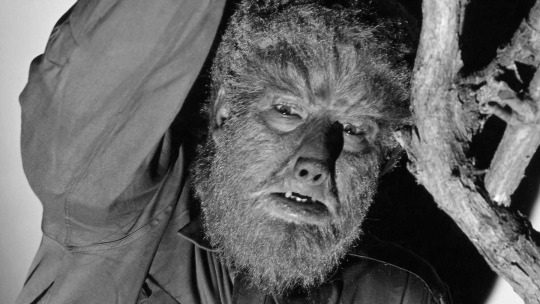
From Silver Bullets to Silver Screens
What werewolf representation lacks in novels, it makes up for in film. Werewolves have been a surprisingly enduring feature of film from its early days, due perhaps to just how much fun transformation sequences are to film. From camera tricks to makeup crews and animatronics design, werewolf movies create a lot of unique opportunities for special effects -- and for early film audiences especially (who were not yet jaded to movie magic), these on-screen metamorphoses must have elicited true awe.
The Wolf Man (1941) really kicked off the trend. Featuring Lon Chaney Jr. as the titular wolf-man, the film was cutting-edge for its time in the special effects department. The creature design is the most memorable thing about the film, which has an otherwise forgettable plot -- but it captured viewer attention enough to bring Chaney back many times over for sequels and Universal Monster mash-ups.
The Wolf Man and 1944's Cry of the Werewolf draw on that problematic Hollywood staple, "The Gypsy Curse(tm)" for their world-building. Fortunately, werewolf media would drift away from that trope pretty quickly; curses lost their appeal, but “bite as mode of transmission” would remain an essential part of werewolf mythos.
In 1957, I Was a Teenage Werewolf was released as a classic double-header drive-in flick that's nevertheless worth a watch for its parallels between werewolfism and male aggression (a theme we'll see come up again and again). Guy Endore's novel got the Hammer Film treatment for 1961's The Curse of the Werewolf, but it wasn't until the 1970s when werewolf media really exploded: The Beast Must Die, The Legend of the Wolf Woman, The Fury of the Wolfman, Scream of the Wolf, Werewolves on Wheels and many more besides.
Hmmm, werewolves exploding in popularity around the same time as women's liberation was dramatically redefining gender roles and threatening the cultural concept of masculinity? Nah, must be a coincidence.
The 1980s brought with it even more werewolf movies, including some of the best-known in the genre: The Howling (1981), Teen Wolf (1985), An American Werewolf in London (1981), and The Company of Wolves (1984). Differing widely in their tone and treatment of werewolf canon, the films would establish more of a spiderweb than a linear taxonomy.
That spilled over into the 1990s as well. The Howling franchise went deep, with at least seven films that I can think of. Wolf, a 1994 release starring Jack Nicholson is especially worth a watch for its themes of dark romantic horror.
By the 2000s, we get a proper grab-bag of werewolf options. There is of course the Underworld series, with its overwrought "vampires vs lycans" world-building. There's also Skin Walkers, which tries very hard to be Underworld (and fails miserably at even that low bar). But there's also Dog Soldiers and Ginger Snaps, arguably two of the finest werewolf movies of all time -- albeit in extremely different ways and for very different reasons.
Dog Soldiers is a straightforward monster movie pitting soldiers against ravenous werewolves. The wolves could just as easily have been subbed out with vampires or zombies -- there is nothing uniquely wolfish about them on a thematic level -- but the creature design is unique and the film itself is mastefully made and entertaining.
Ginger Snaps is the first werewolf movie I can think of that tackles lycanthropy from a female point of view. Although The Company of Wolves has a strong feminist angle, it is still very much a film about male sexuality and aggression. Ginger Snaps, on the other hand, likens werewolfism to female puberty -- a comparison that frankly makes a lot of sense.
The Werewolf as Sex Object
There are quite literally thousands of werewolf romance novels on the market, with more coming in each day. But the origins of this trend are a bit fuzzier to make out (no pun intended).
Everyone can mostly agree that Anne Rice’s Interview with a Vampire was the turning-point for sympathetic vampires -- and paranormal romance as a whole. But where do werewolves enter the mix? Possibly with Laurell K. Hamilton’s Anita Blake, Vampire Hunter books, which feature the titular character in a relationship with a werewolf (and some vampires, and were-leopards, and...many other things). With the first book released in 1993, the Anita Blake series seems to pre-date similar books in its ilk.
Blood and Chocolate (1997) by Annette Curtis Klause delivers a YA-focused version of the classic “I’m a werewolf in high school crushing on a mortal boy”; that same year, Buffy the Vampire Slayer hit the small screen, and although the primary focus was vampires, there is a main werewolf character (and romancing him around the challenges of his wolfishness is a big plot point for the characters involved). And Buffy, of course, paved the way for Twilight in 2005. From there, werewolves were poised to become a staple of the ever-more-popular urban fantasy/paranormal romance genre.
“Sexy werewolf” as a trope may have its roots in other traditions like the beastly bridegroom (eg, Beauty and the Beast) and the demon lover (eg, Labyrinth), which we can talk about another time. But there’s one other ingredient in this recipe that needs to be discussed. And, oh yes, we’re going there.
youtube
Alpha/Beta/Omegaverse
By now you might be familiar with the concept of the Omegaverse thanks to the illuminating Lindsay Ellis video on the topic (and the current ongoing lawsuit). If not, well, just watch the video. It’ll be easier than trying to explain it all. (Warning for NSFW topics).
But the tl;dr is that A/B/O or Omegaverse is a genre of (generally erotic) romance utilizing the classical understanding of wolf pack hierarchy. Never mind that science has long since disproven the stratification of authority in wolf packs; the popular conscious is still intrigued by the concept of a society where some people are powerful alphas and some people are timid omegas and that’s just The Way Things Are.
What’s interesting about the Omegaverse in regards to werewolf fiction is that, as near as I’ve been able to discover, it’s actually a case of convergent evolution. A/B/O as a genre seems to trace its roots to Star Trek fanfiction in the 1960s, where Kirk/Spock couplings popularized ideas like heat cycles. From there, the trope seems to weave its way through various fandoms, exploding in popularity in the Supernatural fandom.
What seems to have happened is that the confluence of A/B/O kink dynamics merging with urban fantasy werewolf social structure set off a popular niche for werewolf romance to truly thrive.
It’s important to remember that, throughout folklore, werewolves were not viewed as being part of werewolf societies. Werewolves were humans who achieved wolf form through a curse or witchcraft, causing them to transform into murderous monsters -- but there was no “werewolf pack,” and certainly no social hierarchy involving werewolf alphas exerting their dominance over weaker pack members. That element is a purely modern one rooted as much in our misunderstanding of wolf pack dynamics as in our very human desire for power hierarchies.
So Where Do We Go From Here?
I don’t think sexy werewolf stories are going anywhere anytime soon. But that doesn’t mean that there’s no room left in horror for werewolves to resume their monstrous roots.
Thematically, werewolves have done a lot of heavy lifting over the centuries. They hold up a mirror to humanity to represent our own animal nature. They embody themes of toxic masculinity, aggression, primal sexuality, and the struggle of the id and ego. Werewolf attack as sexual violence is an obvious but powerful metaphor for trauma, leaving the victim transformed. Werewolves as predators hiding in plain sight among civilization have never been more relevant than in our #MeToo moment of history.
Can werewolves still be frightening? Absolutely.
As long as human nature remains conflicted, there will always be room at the table for man-beasts and horrifying transfigurations.
--
This blog topic was chosen by my Patreon supporters, who got to see it one week before it went live. If you too would enjoy early access to my blog posts, want to vote for next month’s topic, or just want to support the work I do, come be a patron at https://www.patreon.com/tlbodine
51 notes
·
View notes
Text
Hellsing Liveblog Chapters 25-27
This is the first leg of the “D” arc. I had originally planned on trying to do the whole thing in one post, but it’s pretty long and meanders in places, so instead I’m going to break it up, starting with the part that wraps up volume 4 of the collected editions.
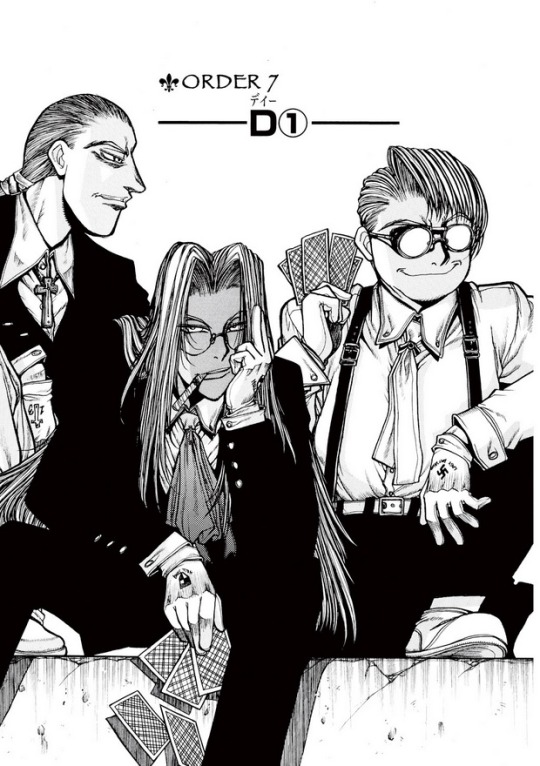
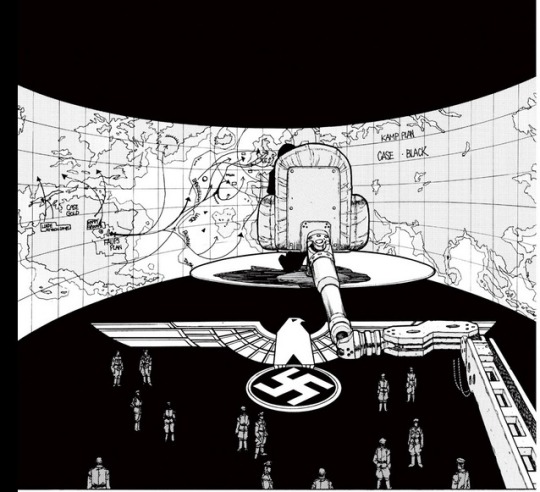
Much of these first three chapters just showcases Millennium preparing to depart their secret headquarters in Brazil. They have three blimps, maybe more. We already saw the Graf Zeppelin III, but there’s also a Graf Zeppelin II and a Hindenberg II. Also, the Major refers to all of this as “Operation Sea Lion 2″. The original “Operation Sea Lion” was Nazi Germany’s plan to invade the U.K. during World War II. It was never enacted, however, because the Germans couldn’t establish air and naval superiority over the British. Basically, the Major is declaring that he has finally achieved what Hilter could not, thanks to his “Last Battalion” of 1000 vampire soldiers.
The bridge of his flagship (flagblimp) has this big comfy chair on a robot arm, and a panoramic world map. The arrows on the map point in all sorts of nutty directions, including the United States and other European nations. I could have sworn I had heard some mention in Hellsing Ultimate of Millennium sending forces to the U.S., but the international angle was never mentioned again, and I assumed that I must have imagined it. In any event, the Major made it clear that his target is Alucard specifically, so it doesn’t make a lot of sense to invade places where Alucard is not.

The Major prepares to take his seat only to find Warrant Officer Schrödinger sitting in his chair. Remember, Schrödinger inexplicably teleported himself to London to address Hellsing and Iscariot, and then he got shot and killed for his trouble. But now he’s back, alive and well. He mocks the Major for being to slow, and the Doctor scolds him for his insolence, but the Major orders Doc to back off. This is a running gag throughout the rest of the series. The Doctor keeps trying to chastise Schrödinger, but the Major lets him do whatever the boy wants, almost like he’s some favorite pet.
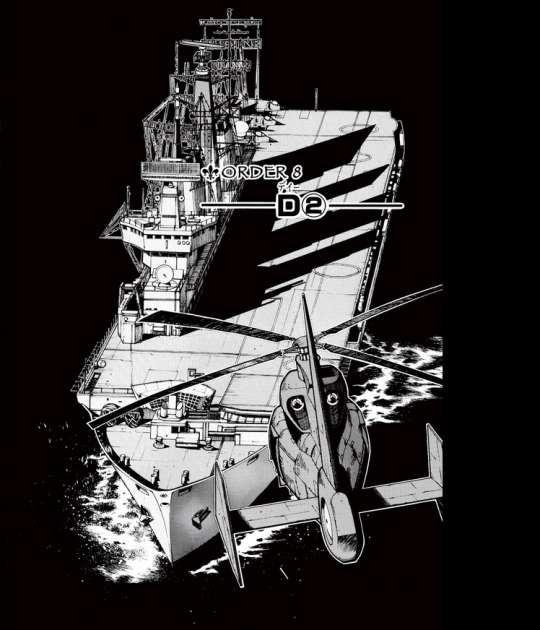
Meanwhile, an unidentified helicopter tries to land on a British carrier, the H.M.S. Eagle. The Captain orders his crew to open fire, but the first officer suddenly does this:

So yeah, the first officer is a vampire now, and he’s sold out Queen and Country for Millennium. He and a handful of vampire crewmen kill the rest of the crew and turn them all into ghouls, allowing the helicopter to land, making way for...

This lady, Lieutenant Rip Van Winkle. I should point out that in the pages leading up to her boarding the Eagle, she was singing Engelandlied, a German war anthem from World War I. She’s nutty, is the idea.
So, I’m gonna go ahead and put forth my fan theory that all the bad guys we dealt with prior to Rip were just patsies for Millennium, and not actual members in their own right. This includes Tubalcain “Dandyman” Alahambra, because, for all his powers, no one ever said his rank, leading me to think he didn’t have one. Same with the Valentine Brothers and any of the vampires Alucard and Seras were sent to fight during the first dozen or so chapters of this manga. Millennium may have turned them into vampires, and in some cases they even let them in on Millennium’s inner workings, but they were never more than cannon fodder. Jan seemed to understand this, although Luke and Dandyman seemed to believe they were genuinely created to represent the new pinnacle of vampiric power. Even the Doctor thought Dandyman had a strong chance of beating Alucard, but in the end they were just experiments meant to test Alucard’s mettle.
And, really, the rest of Millennium is not much different, except Rip and the others actually know why they’re being sacrificed, even if they don’t necessarily understand how or when.

Meanwhile, Seras still won’t drink blood, and she keeps trying to eat regular food instead, even though she struggles to swallow every bite. I’ve never been very clear on whether vampires in Hellsing can eat non-blood food or not. Seras is doing it, albeit painfully, but I don’t think she really gains anything from it, except whatever coping mechanism this is supposed to serve.

So in walks Sir Integra, who dumps a bag of medical blood on her table. Seras never really answers Integra’s question, but she already told Walter, and it’s not much of an answer. The heart of the matter is this: Seras really doesn’t want to be a vampire. Or, maybe, more accurately, she doesn’t want to stop being human. The trouble is that she already lost that battle way back in Chapter 1.
In many ways, Seras has accepted her fate. She works for Hellsing, recognizes Alucard as her vampire master, and so on. I think she understands that this is the only life she can have now, and her will to live is strong enough that she appreciates what Alucard and Integra have done for her. At her core, Seras is a public servant, and fighting monsters for Hellsing is not so different from fighting crime as a policewoman. I think she sees her current condition as a means to that end. She doesn’t crave power like the evil vampires we’ve seen thus far. Seras views her abilities as a means to an end. Alucard biting her gave her a way to stay alive and continue fighting the good fight.
However, she doesn’t want the baggage that goes along with that. She wants to retain as much of her humanity as she can, and drinking blood is the one thing that she has some control over, or so she believes.
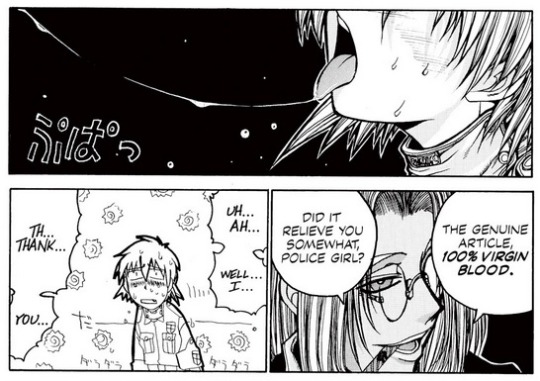
But Integra’s far too practical for that dilemma. Alucard was willing to respect Seras’ relucatance, but she needs her troops on their toes and ready for action. So she takes a knife and cuts open her finger, and then orders Seras to lick the blood off. This is... disturbingly sexual, and one of a number of scenes that reminds me that Hirano Kouta had done a lot of, er, adult comics before Hellsing. I think he did a lot of uniform fetishy stuff too, which is why Seras and Schrödinger’s uniforms look so similar to each other. Both are meant to resemble German WWII gear. I’m willing to grant some leeway here, because there’s probably only so many ways to do a finger-licking scene like this without sexualizing it a little, but the last bit with the saliva trail is just revolting.
So, what’s bugged me for a long time was that if Seras drank (a little) of Integra’s blood here, why did this subplot not get paid off until much later in the story? She drank blood, didn’t she? Well, yeah, but Integra ordered her to do it, so it doesn’t count. This came up a couple of times earlier in the story, when Walter and Al mentioned that she wouldn’t drink blood willingly. It’s not just an ethical issue for Seras, or she’d simply chow down on the medical blood. I guess Integra could force feed her every night, but that wouldn’t solve anything. This is about Seras accepting her transformation as a fait accompli. I think this is why she very nearly drank Alucard’s blood back in Northern Ireland, when it sure looked like there was no other way for her to survive. But if she’s just sitting there with no one making her do it, and no urgent need to do it, she’ll refuse every time.
I think Hellsing uses the premise that a vampire has to do more than just bite a human to turn them into a vampire. That is, Alucard had to put his own blood in Seras’ body to complete that transformation. I think that’s how it worked in the Dracula novel, and Seras herself mentions it in the Gonzoverse anime. But that wouldn’t count either, because it’s part of the change itself. The idea is for the new vampire to partake in blood-drinking by choice, and until that happens, they won’t get all the cool powers.
One other thing, Integra takes this opportunity to mention that she’s a virgin, which is a weird flex for this situation, but okay. In Hellsing, that means Integra could become a vampire herself, but not if Seras bites her, because it has to be a vampire of the opposite sex. In any case, Tegs warns Seras not to bite down during this creepy finger-licking KFC-hentai thing.
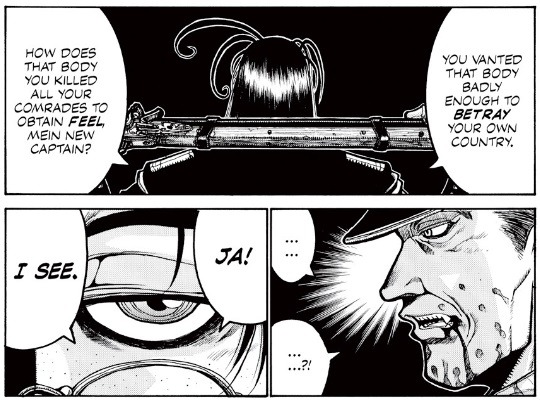
Back in the damn ocean, Lt. Rip van Winkle is welcomed aboard by the traitorous crew of the Eagle. She asks them how it feels to be a vampire, and causally reminds them of their treachery. Then she gives them new orders, which are to die by her magic gun, which fires a bullet that can turn around in midair.

And so the First Officer and his lackeys learn the same lesson as the Brazillians working for the Dandyman, and the Dandyman himself, and the Valentine Brothers and whoever else. Millennium might turn you into a vampire, but that hardly means that you’ll live forever. Millennium always demands treason as payment for their help, and it doesn’t take a genius to figure out that they might betray you sooner or later.
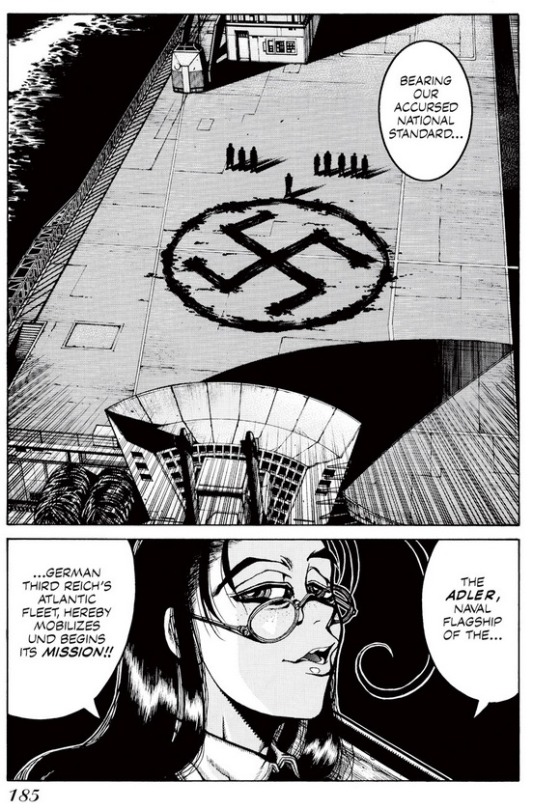
Besides, Rip doesn’t need the British crew, because she has her own henchman on board her chopper. While she waits for them to wake up, she paints a swastika on the deck, just to make it clear that they’ve taken control of the Eagle, which she renames the Adler. That’s German for “Eagle”, you see.
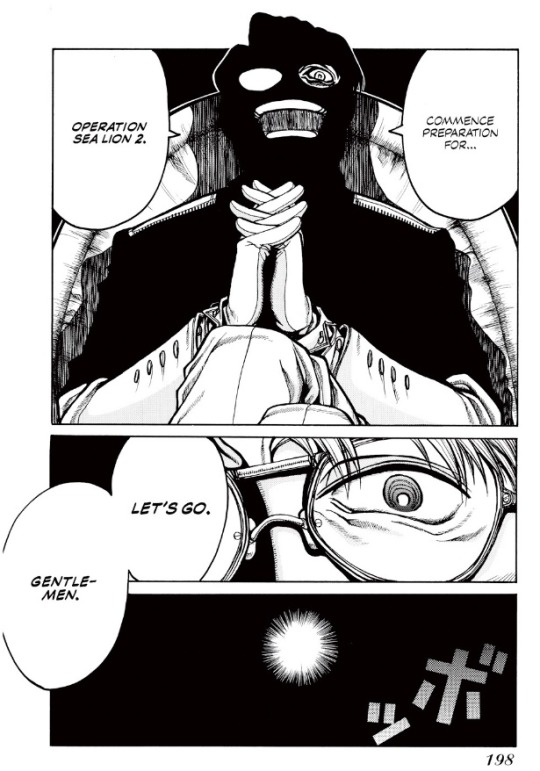
Back on his blimp, the Major cuts this twenty-minute promo which basically amounts to “I love war, we have no particular agenda except to wage endless war for the fun of it.” Back in England, Alucard is eagerly awaiting their arrival.
#2021hellsingliveblog#hellsing#alucard#seras victoria#sir integra hellsing#the major#lt rip van winkle#the doctor#warrant officer shrodinger#enrico maxwell#... is not actually in this story#they just put him on the title page for some reason
19 notes
·
View notes
Note
So what countries would you like to visit?
I kinda have a bucket list of places where I want to go someday, places were the imaginary and the historical meets the real and the modern.
Let me explain it. I want to visit places that appeared in mythology, or just famous places where a lot of my favorite films and books took place.
New York City - Invaded by King Kong, saved by the Avengers and the Ghostbusters, visited by Giselle and the Smurfs, home of the Greek gods in Percy Jackson, the epicenter of the american imagination
Disneyland and other Disney parks - Huge Disney fan here. I would give anything to interact with the characters and the created worlds, although I prefer Disneyland because it's the only park built when Walt was still alive.
London - Where King Arthur pulled the sword from the stone, home of Sherlock Holmes, Ebenezer Scrooge, Dorian Gray and Mary Poppins. Visited by Peter Pan, attacked by Dracula. Home of the Diagon Alley in Harry Potter. Basically the epicenter of the british imagination
The German Fairy Tale Route - From Wikipedia: "The route runs from Hanau in central Germany to Bremen in the north. Tourist attractions along the route are focused around the brothers Wilhelm and Jacob Grimm, including locations where they lived and worked at various stages in their life, as well as regions which are linked to the fairy tales found in the Grimm collection."
Paris - I don't need to say much.
Greece - The museums and the ruins of the ancient temples and cities
Italy - The same reason than Greece
Egipt - The same reason than Italy and Greece.
Japan - Not huge on Japanese culture, but I want to know more.
And all the ancient castles, fortresses and palaces I can find in my way.
8 notes
·
View notes